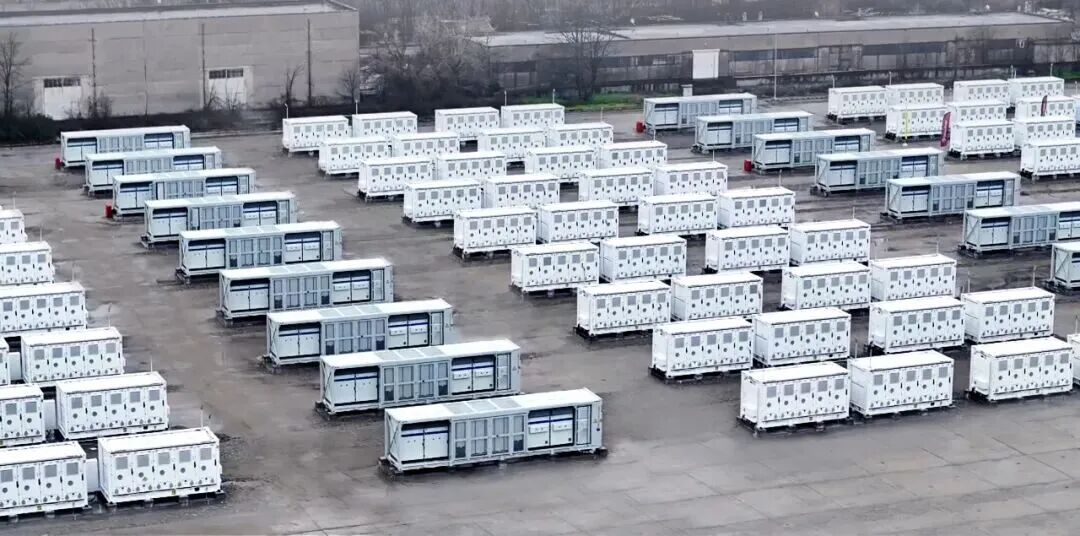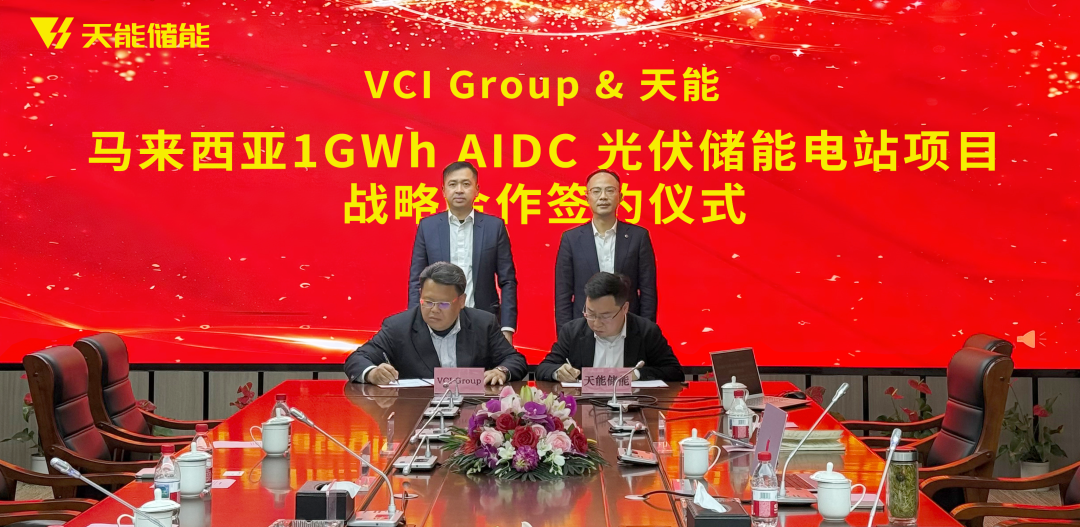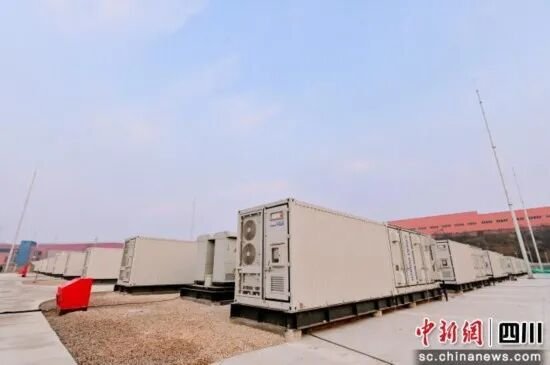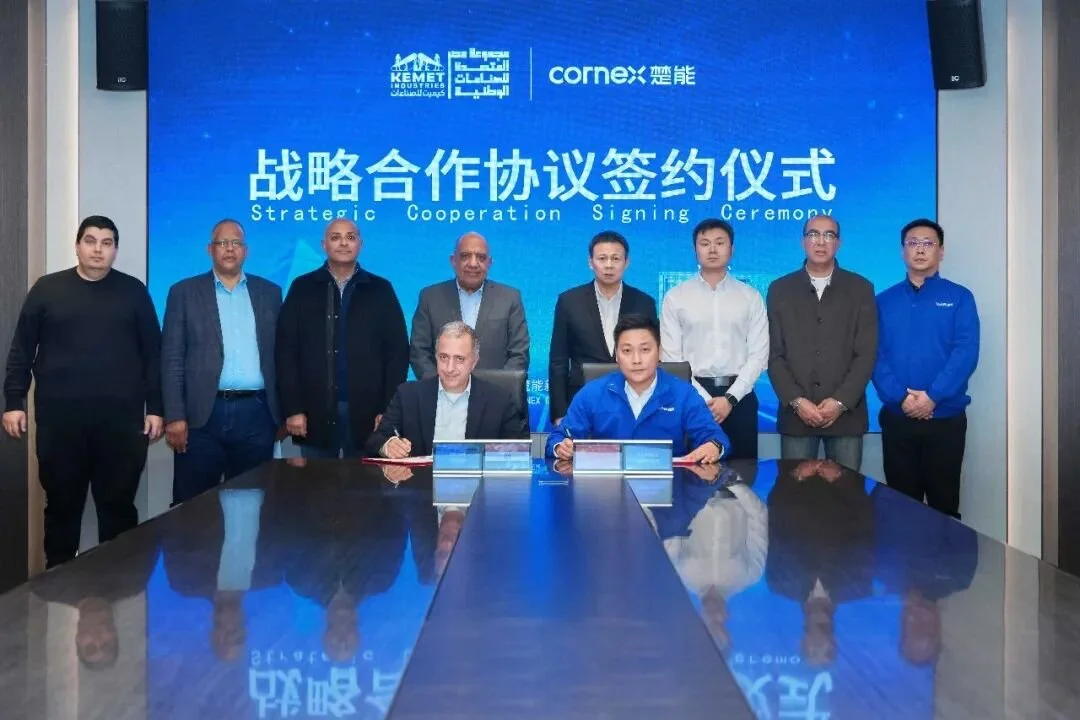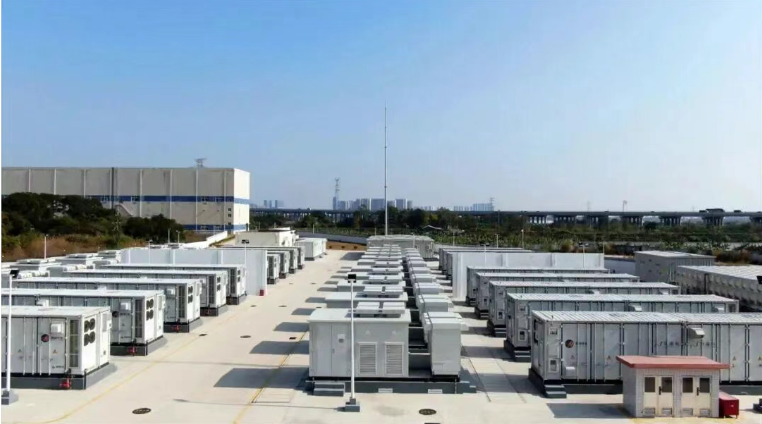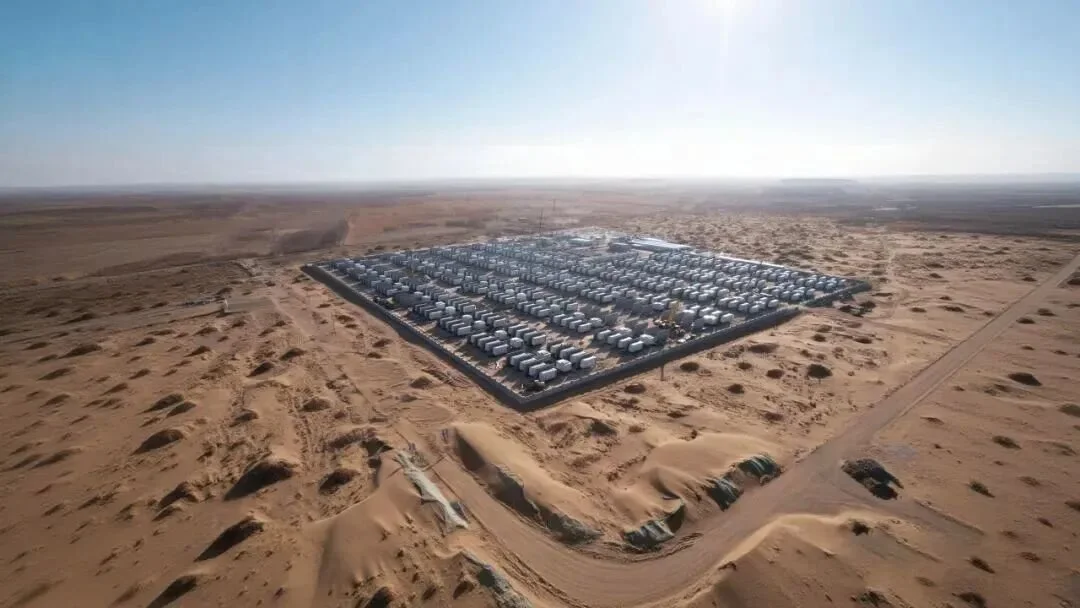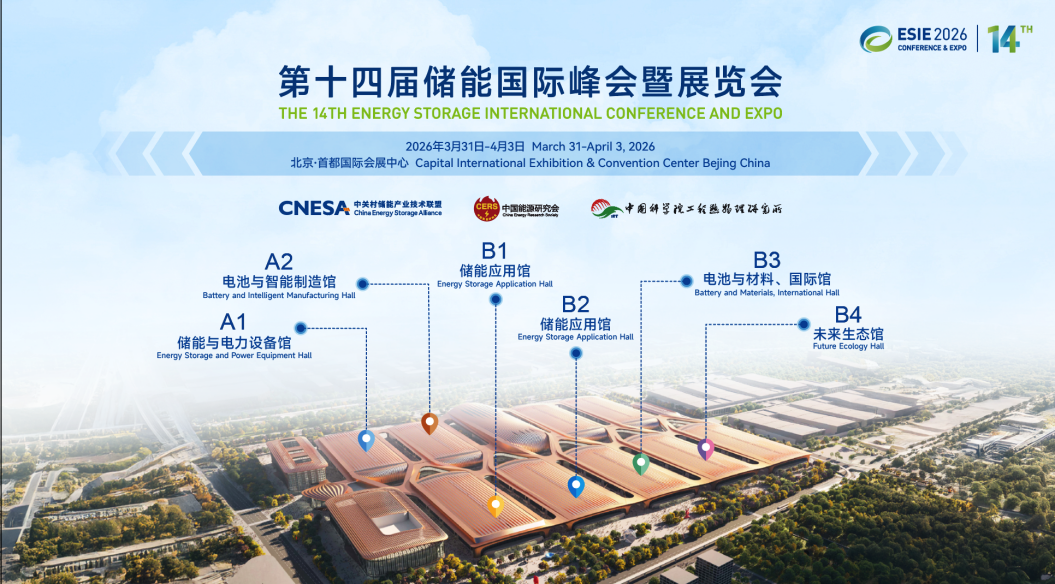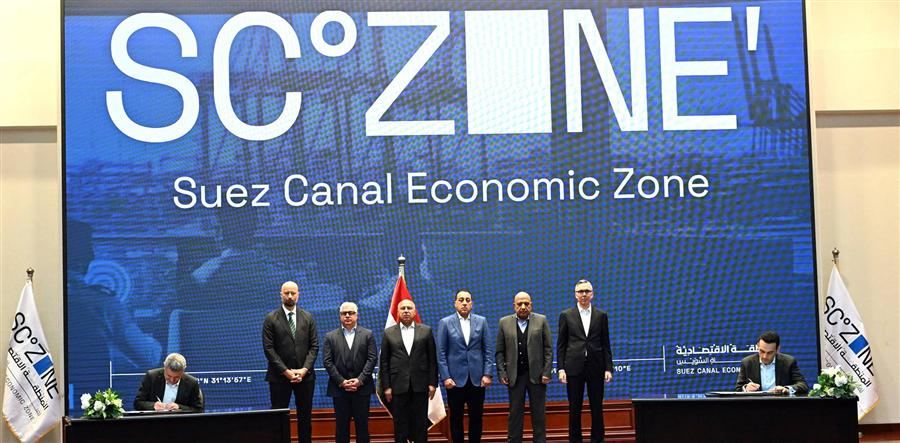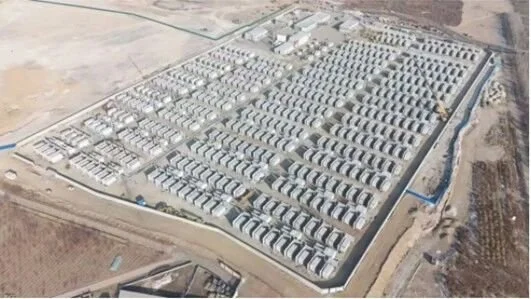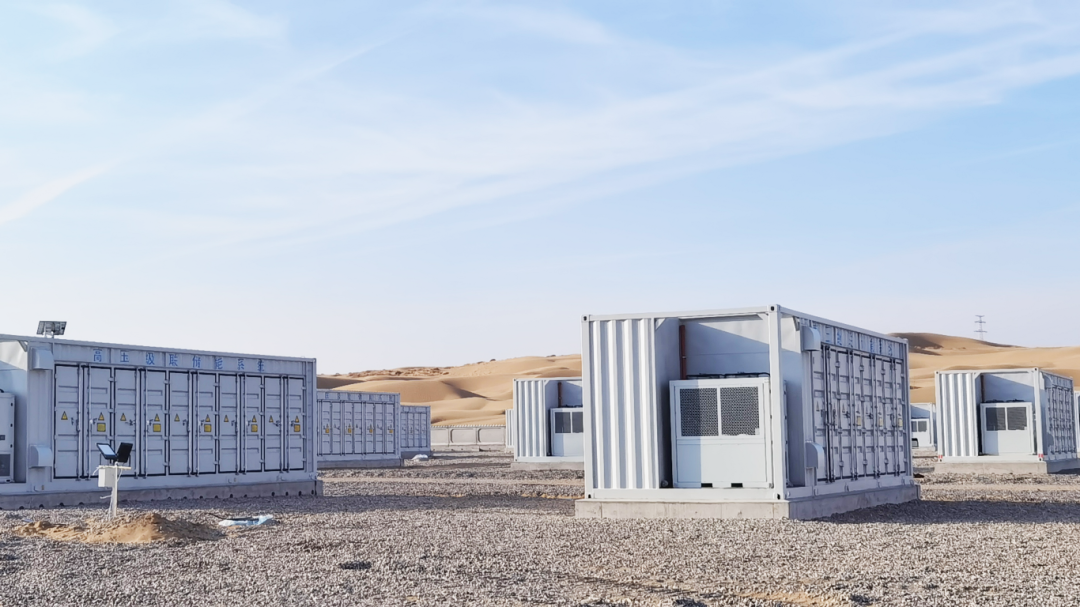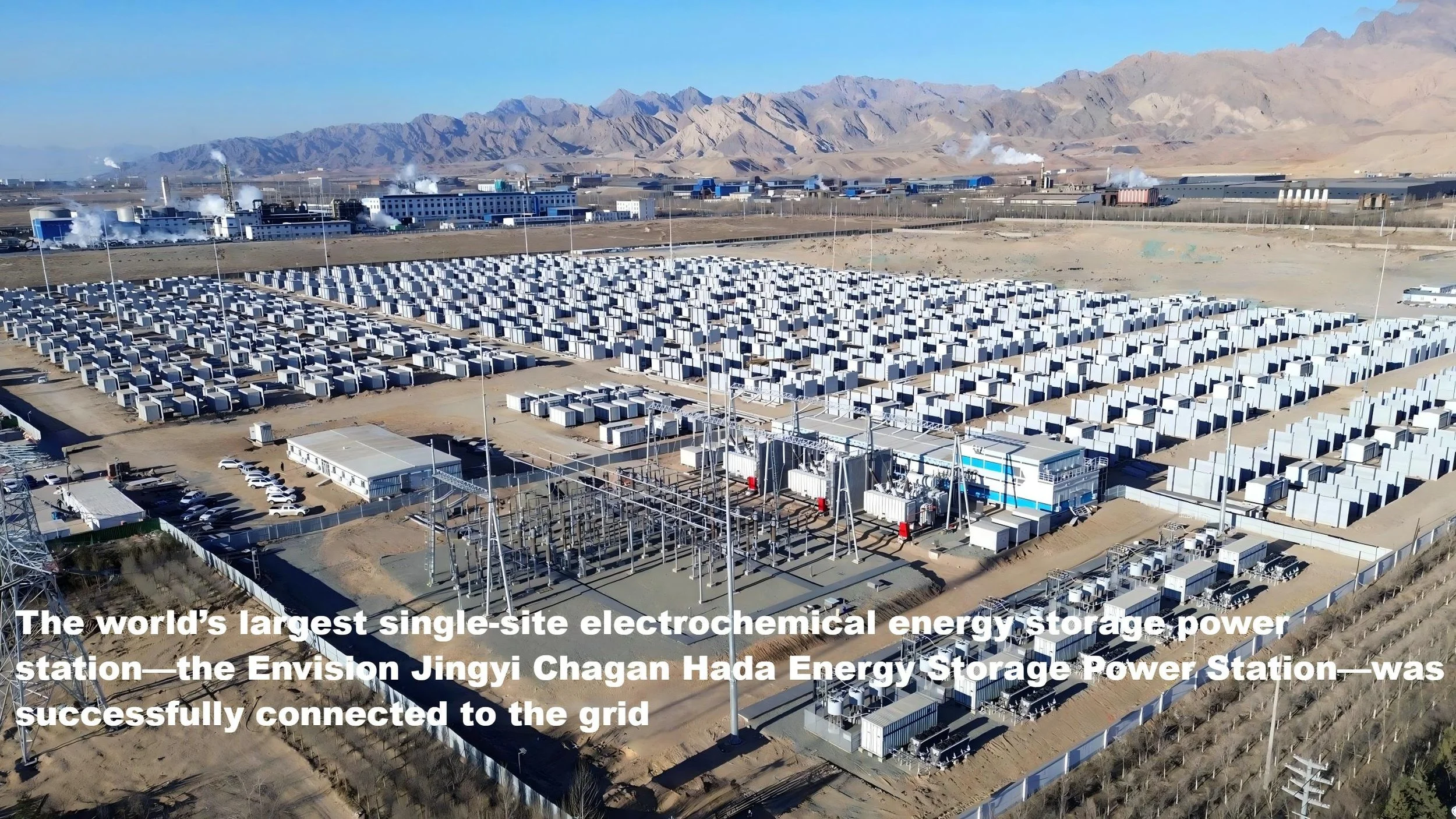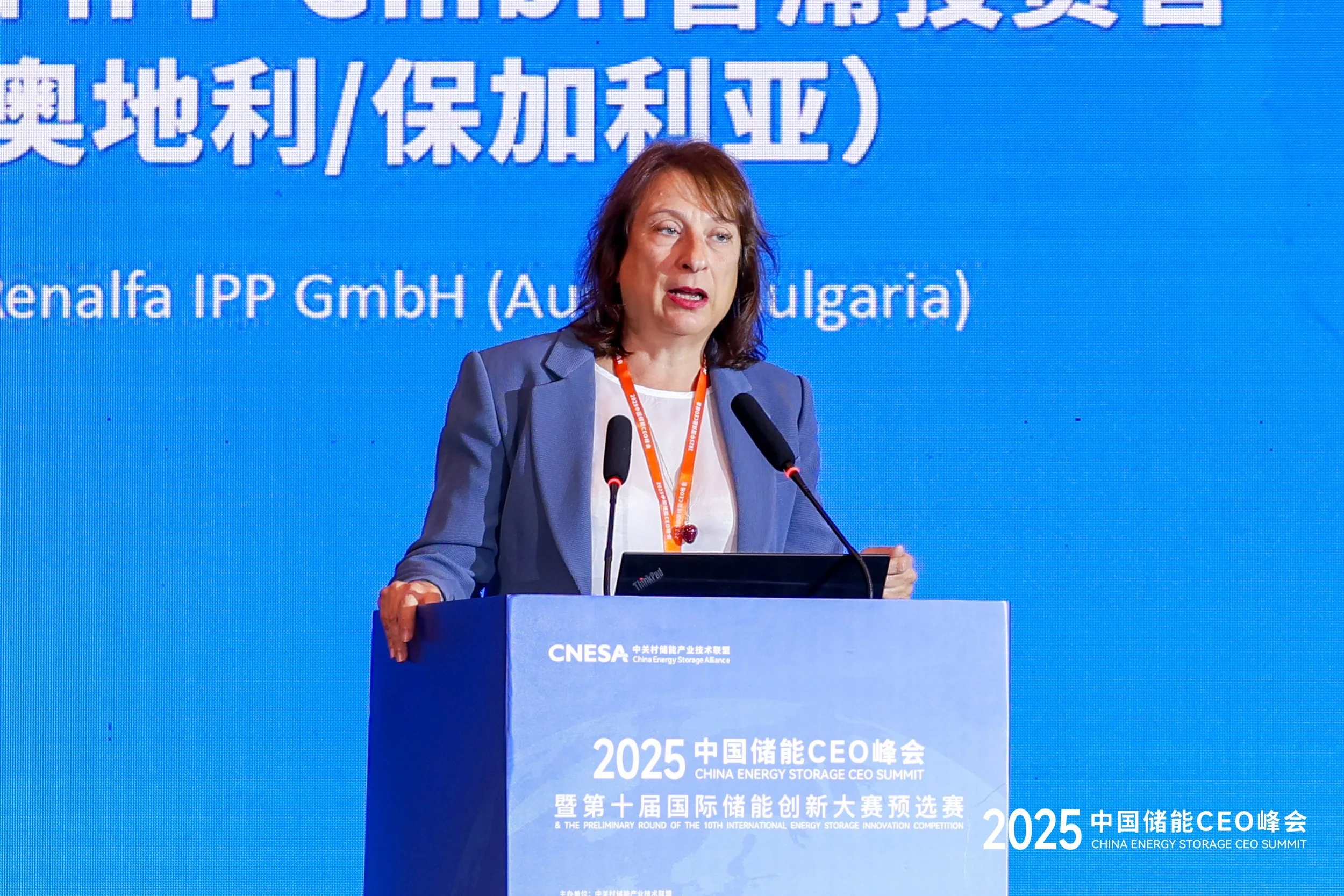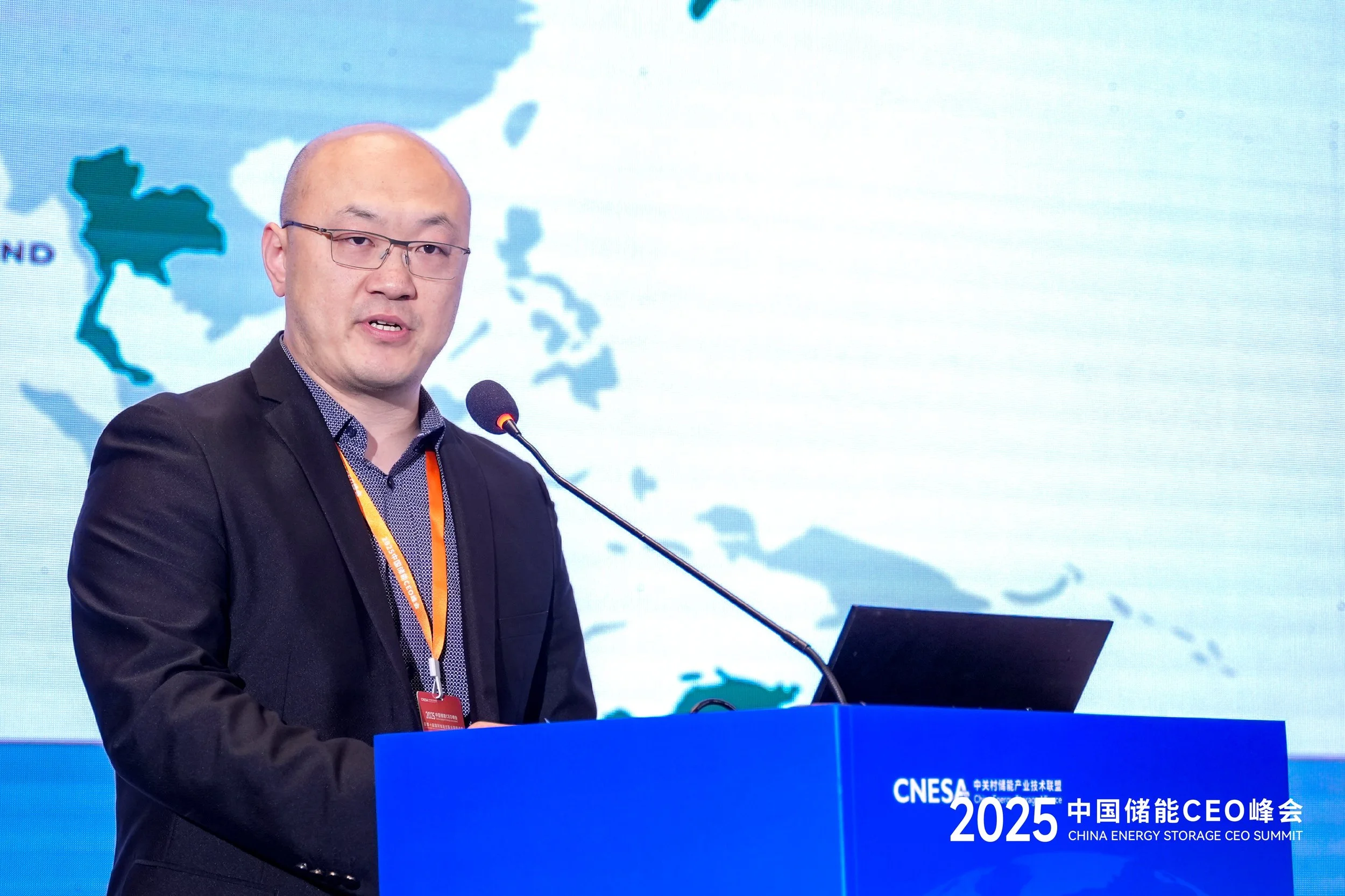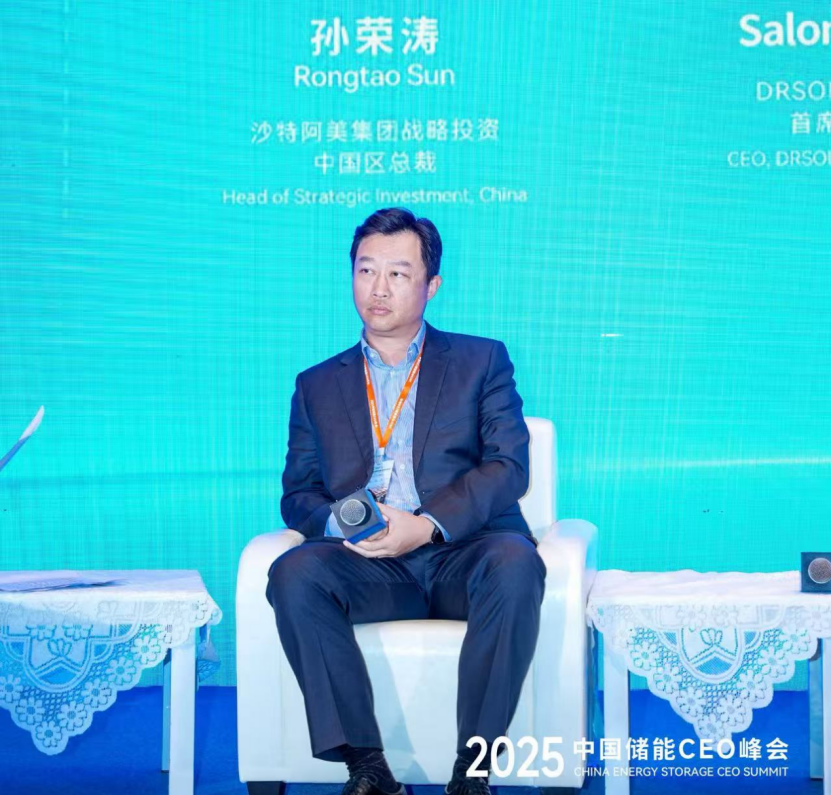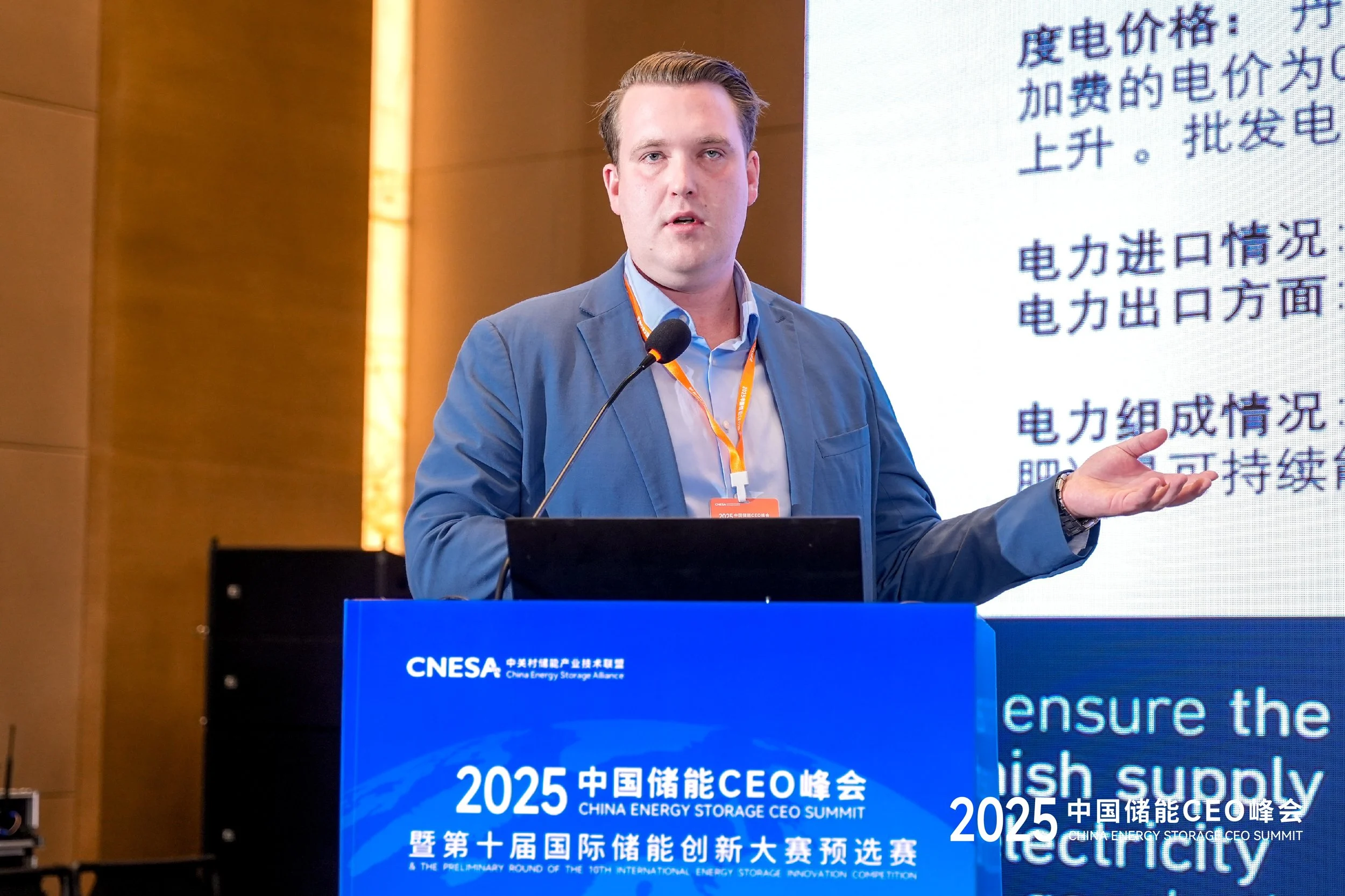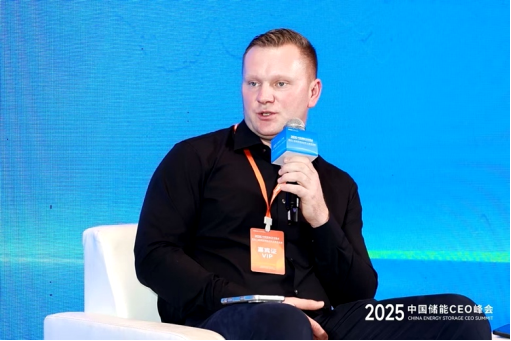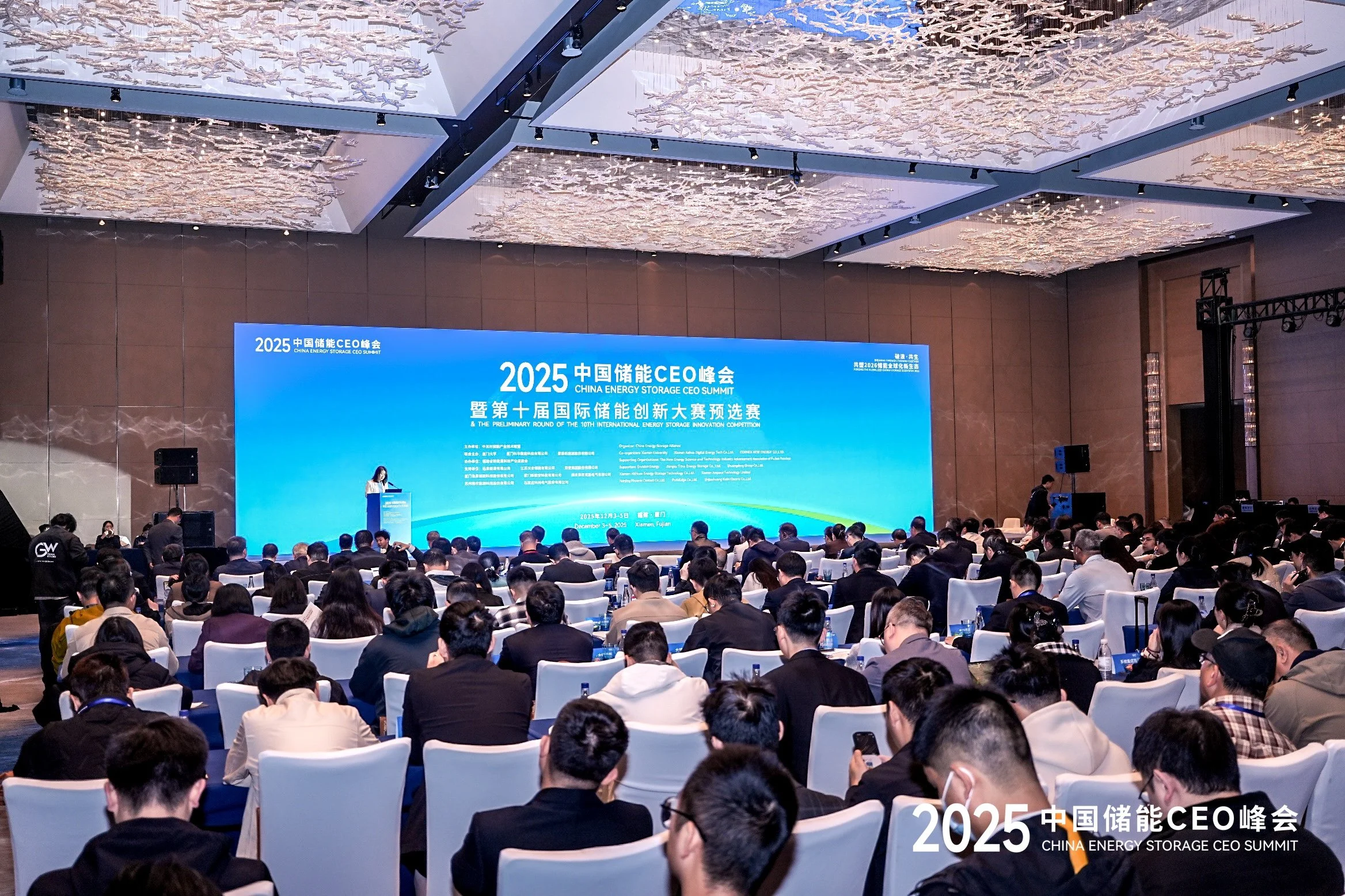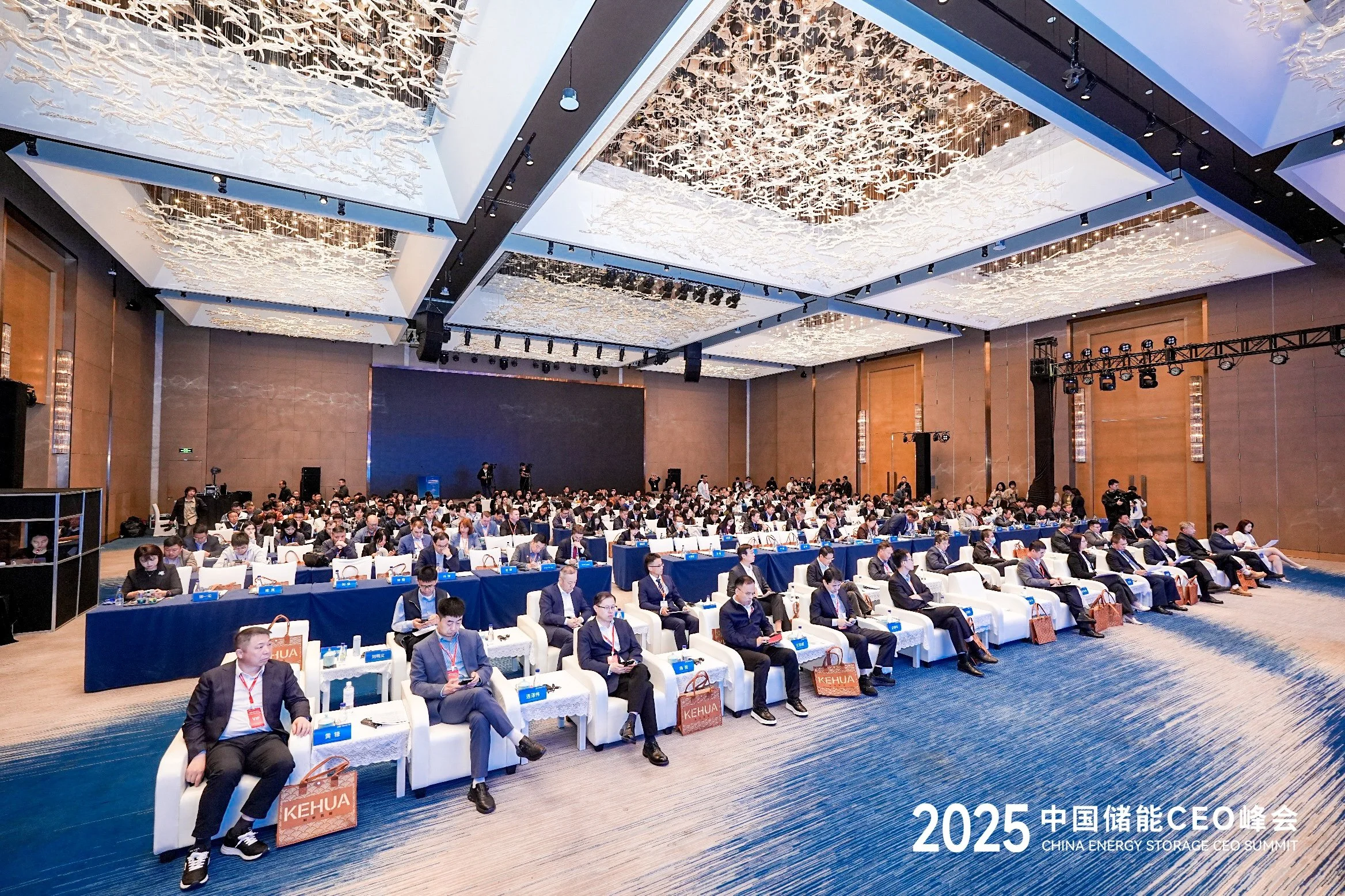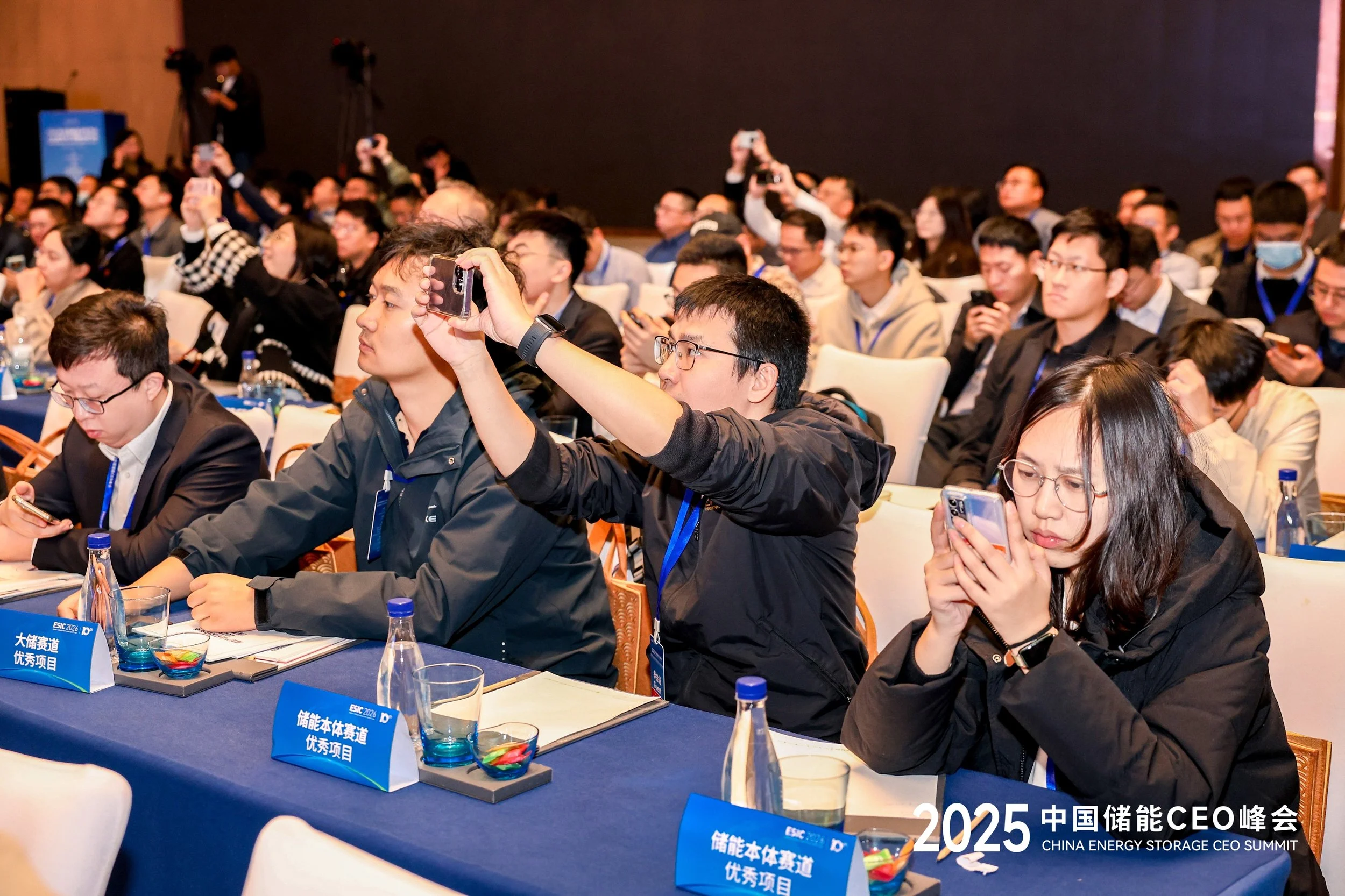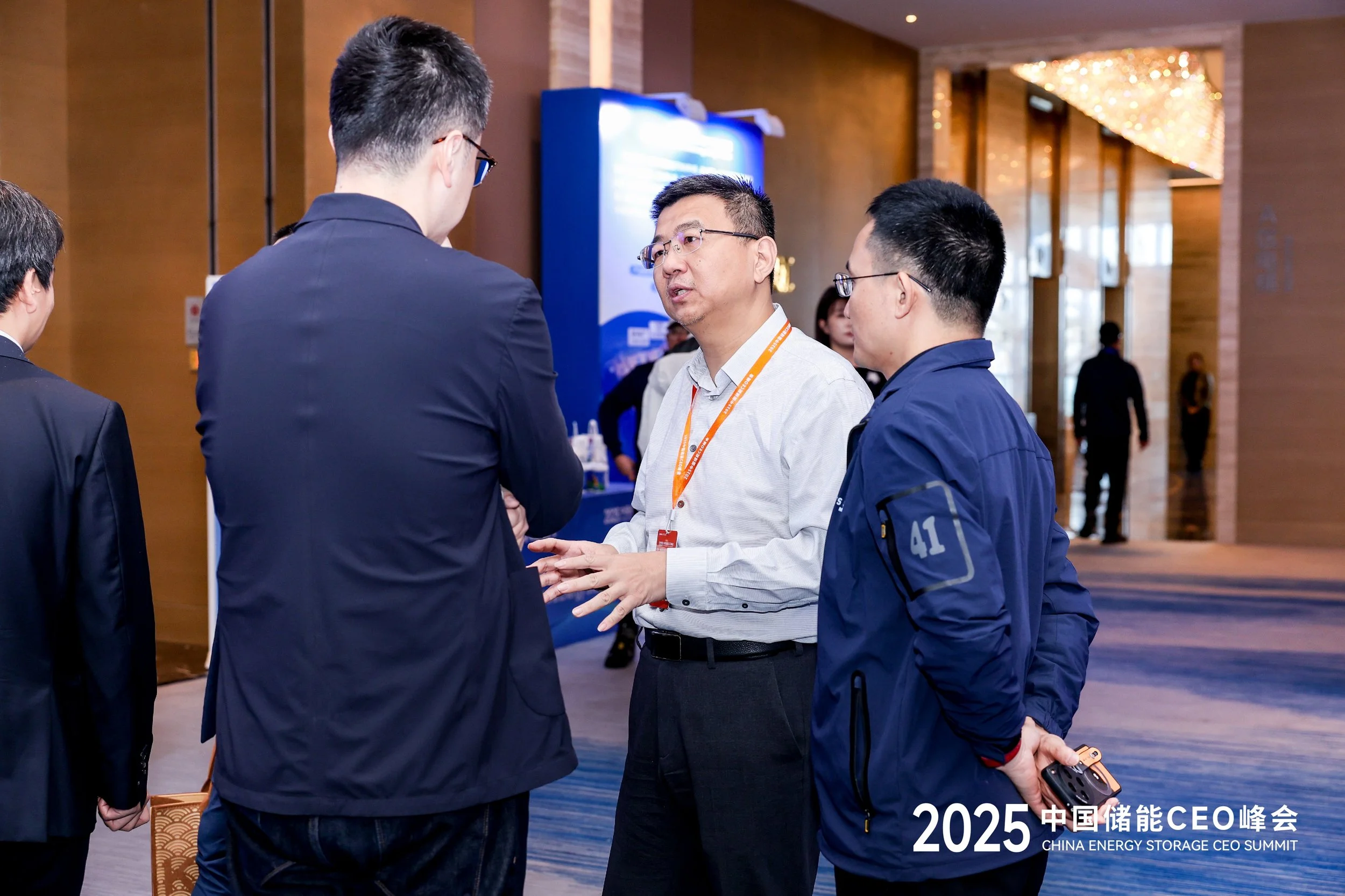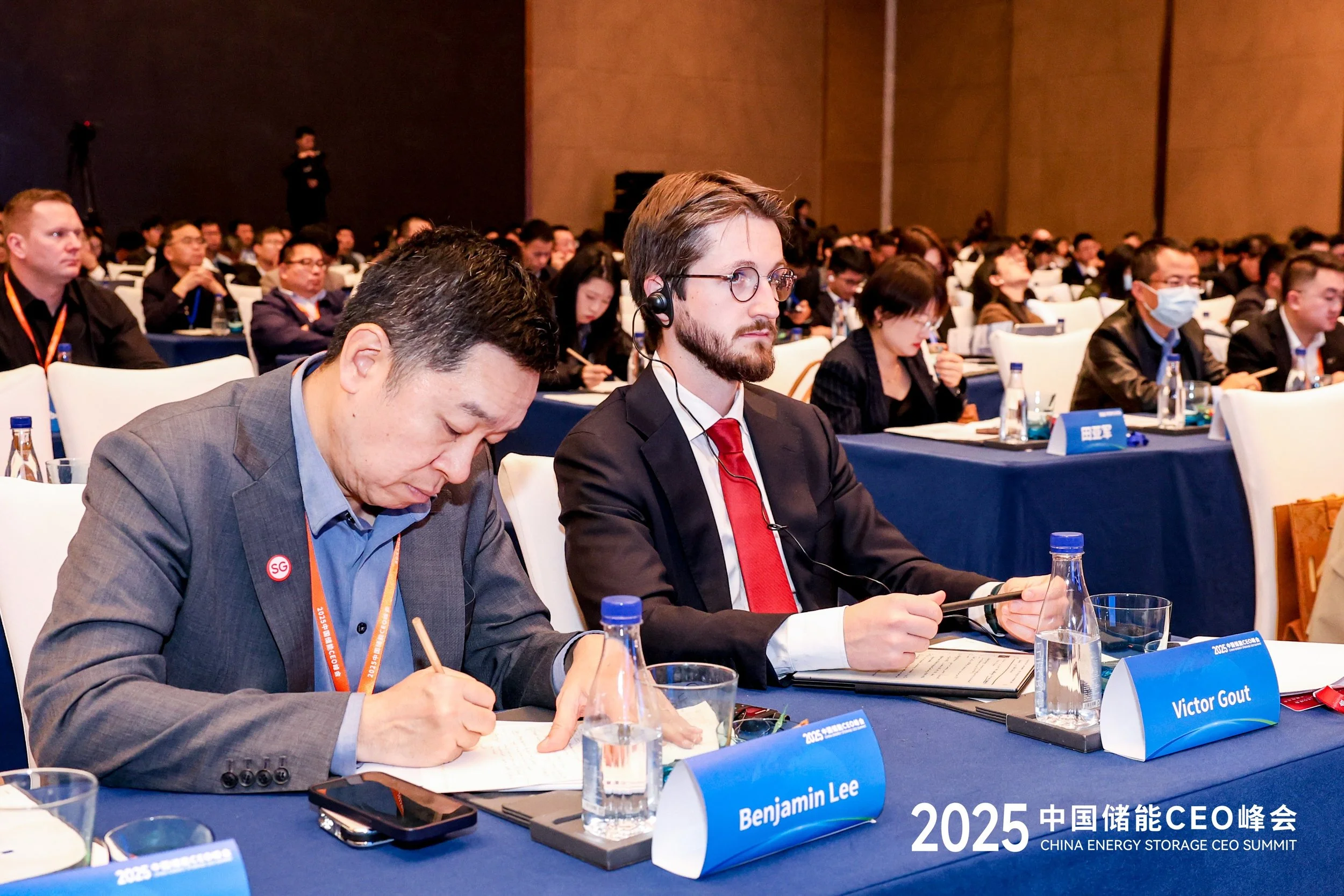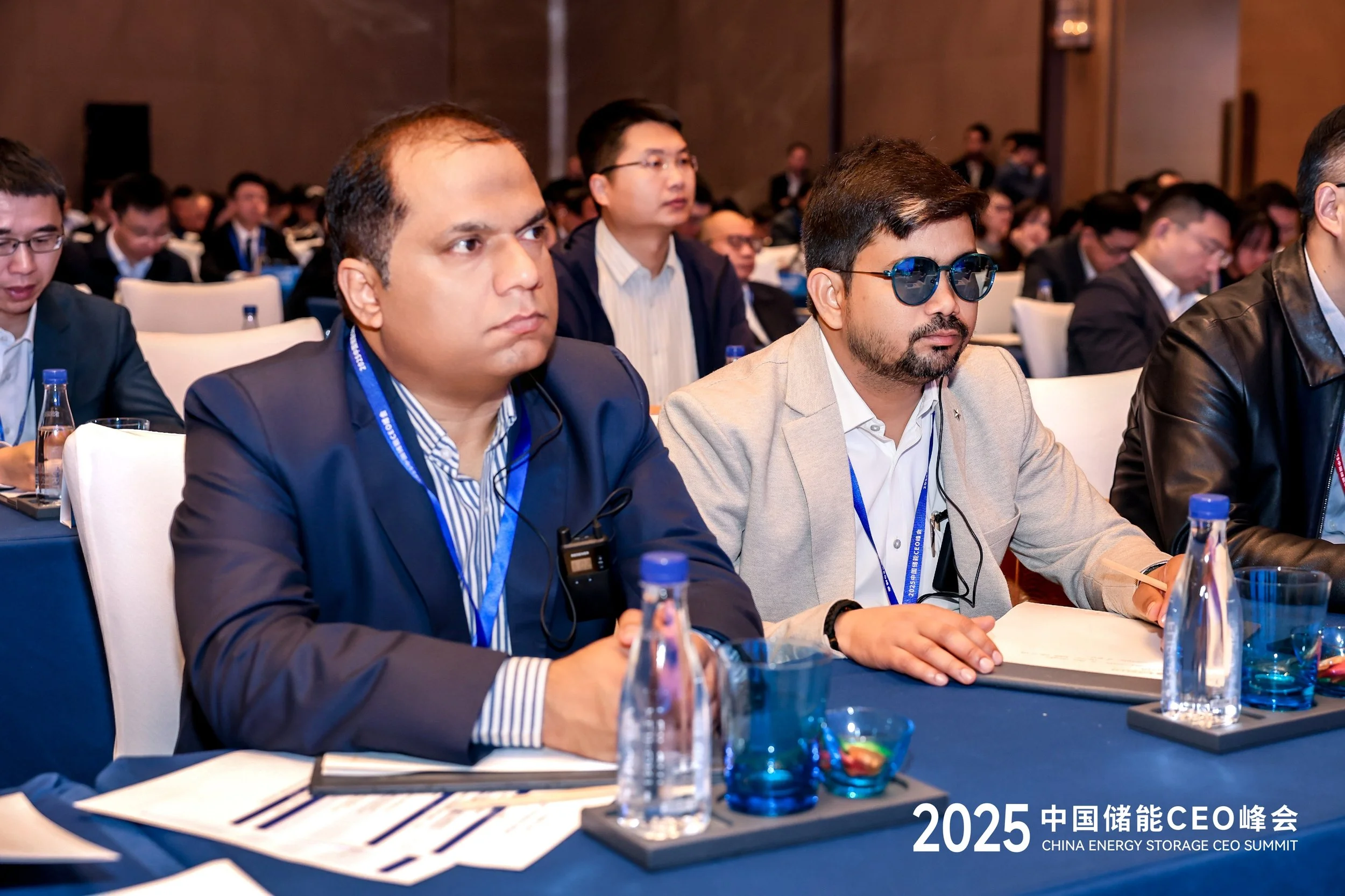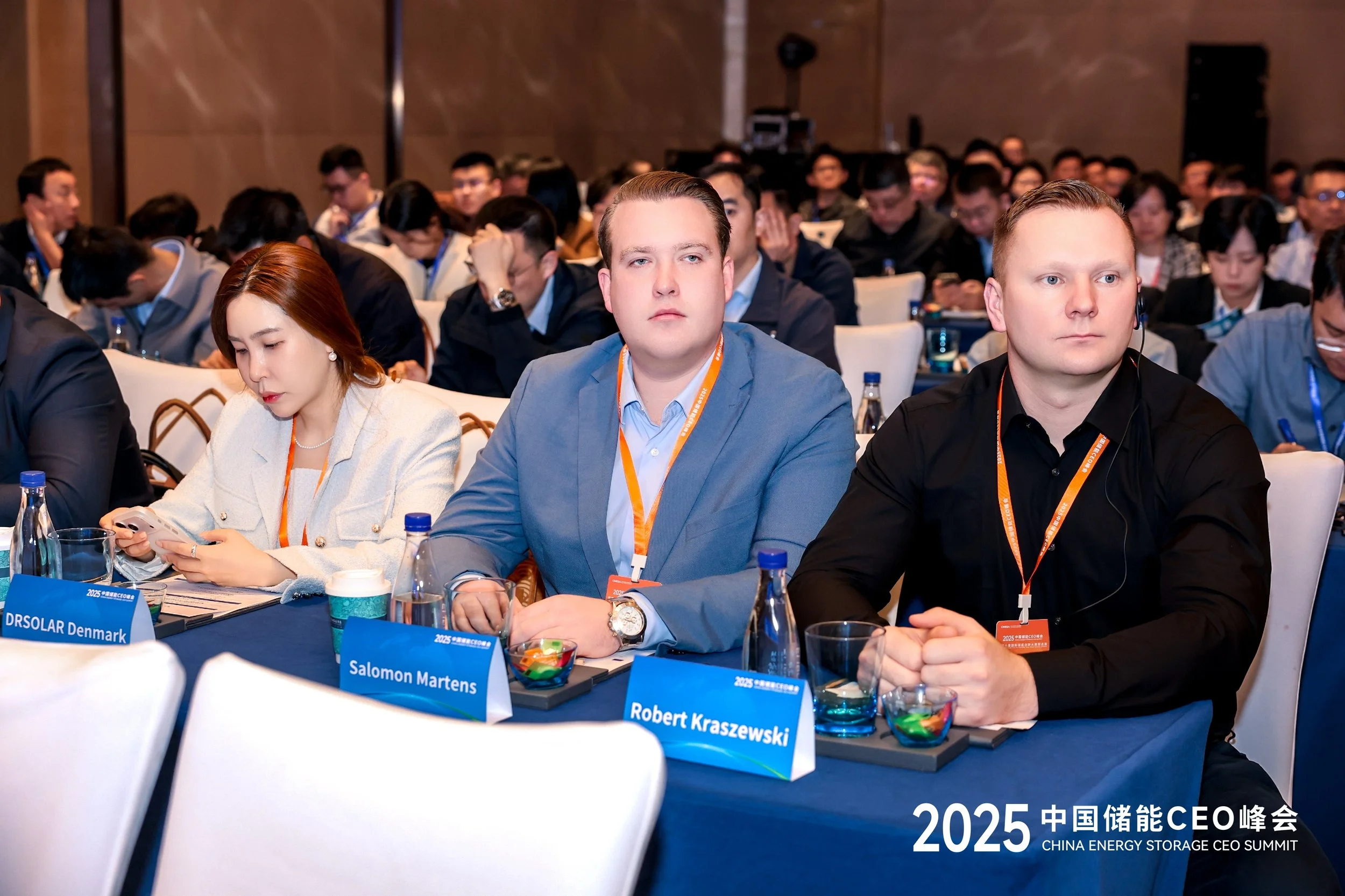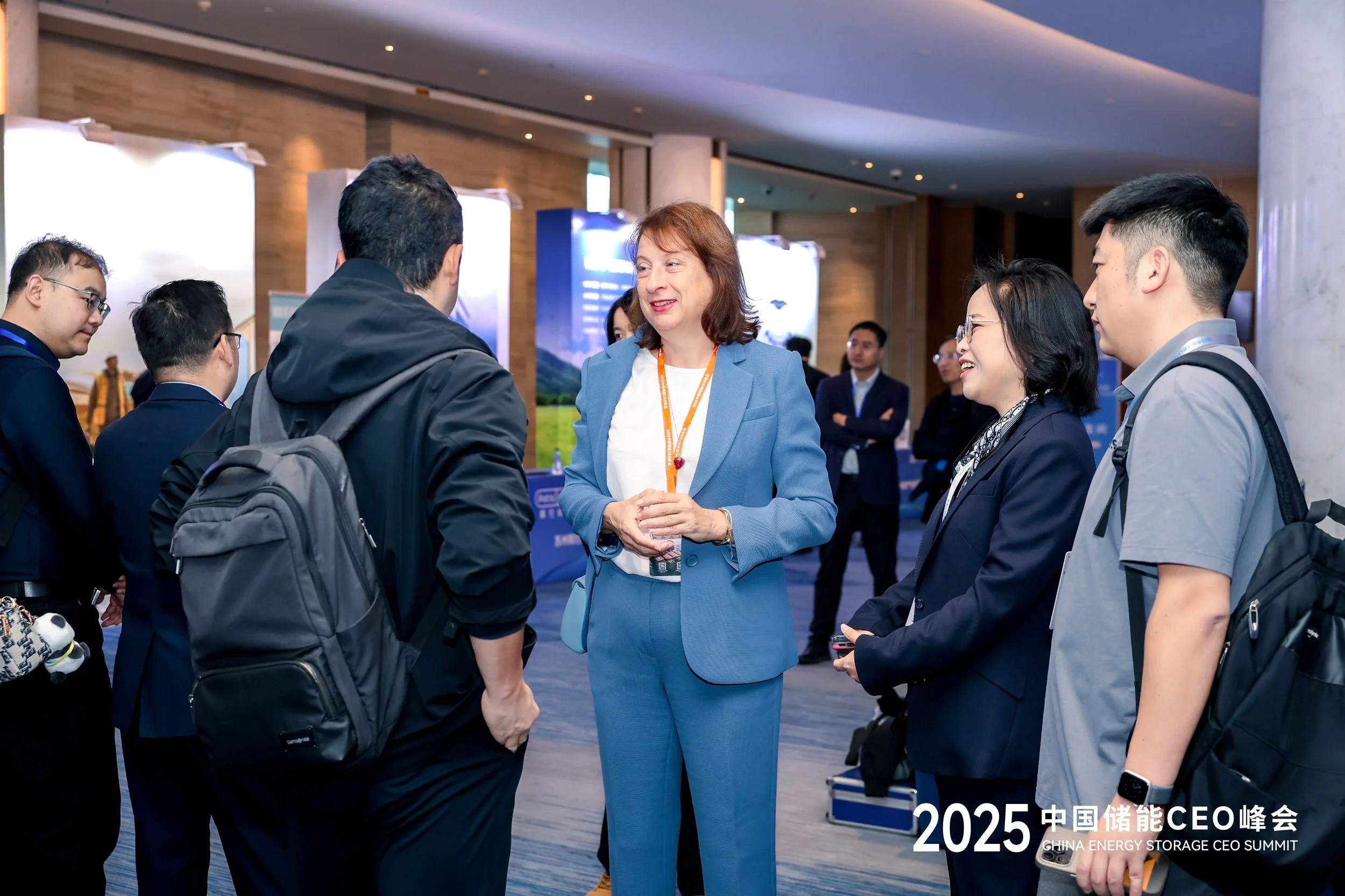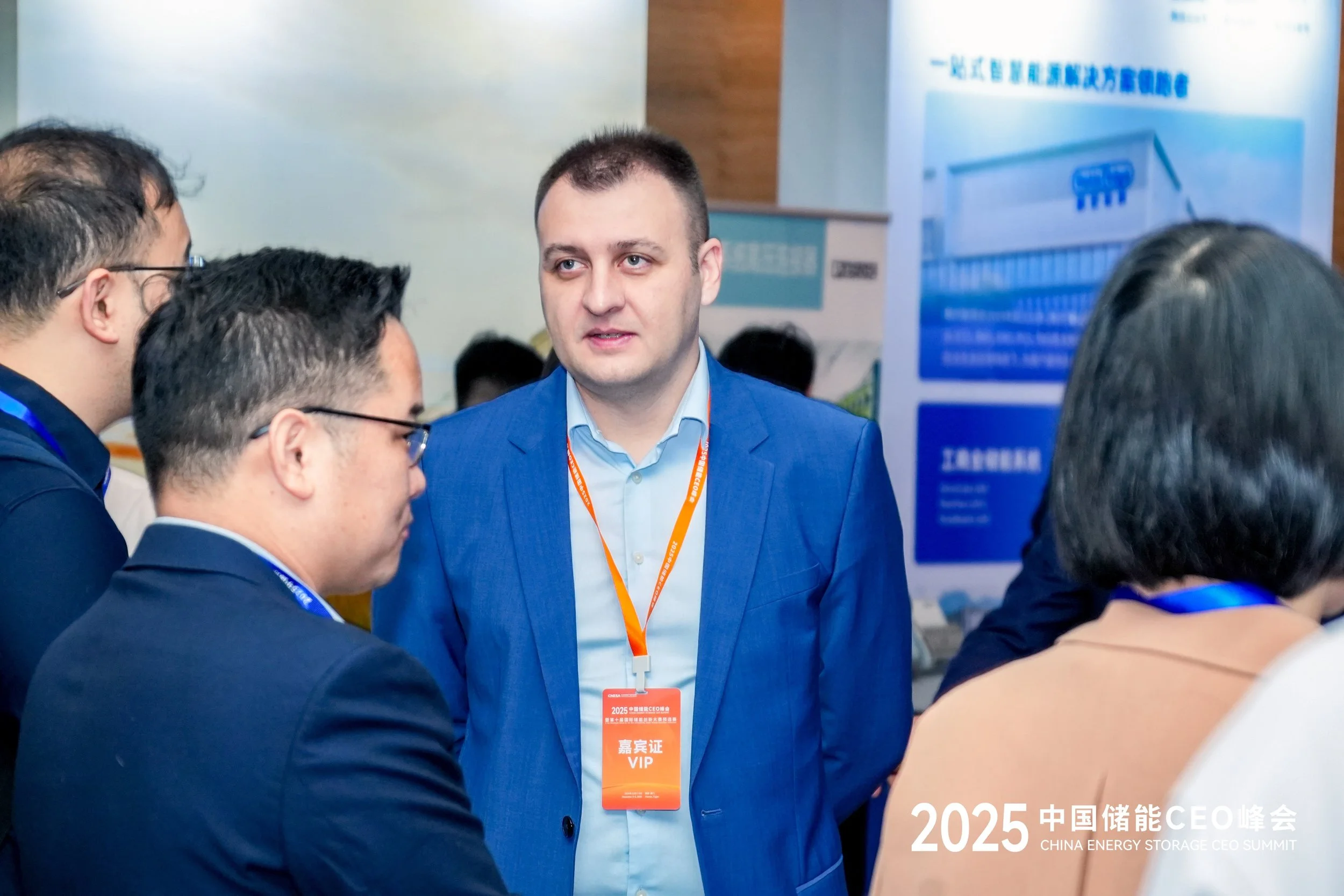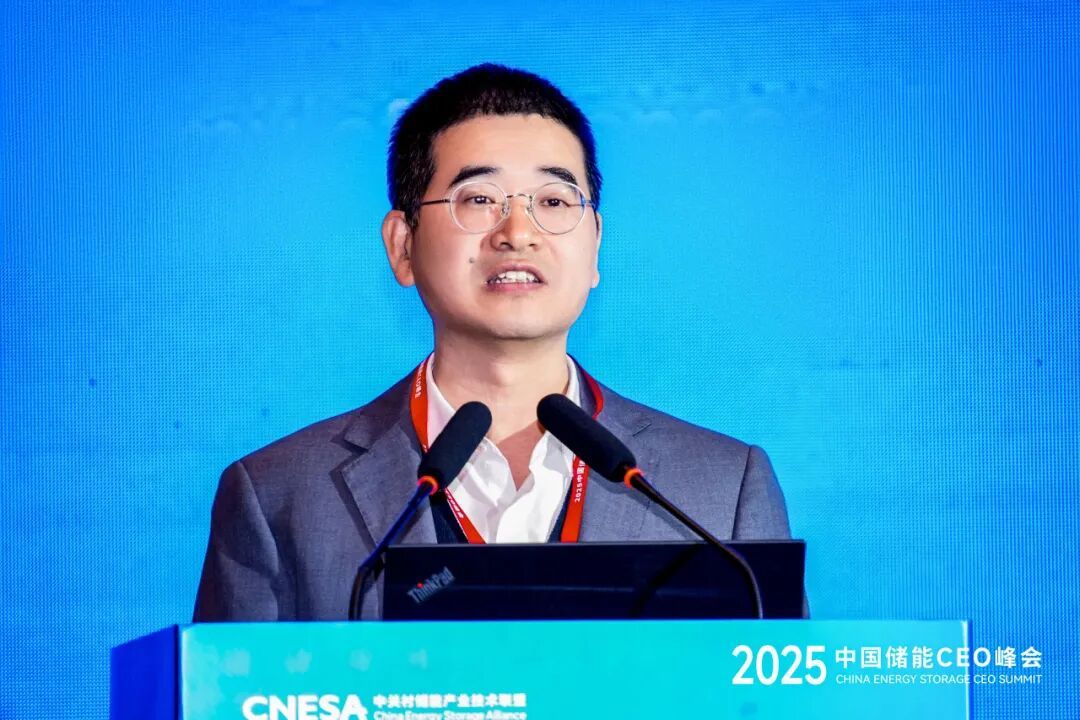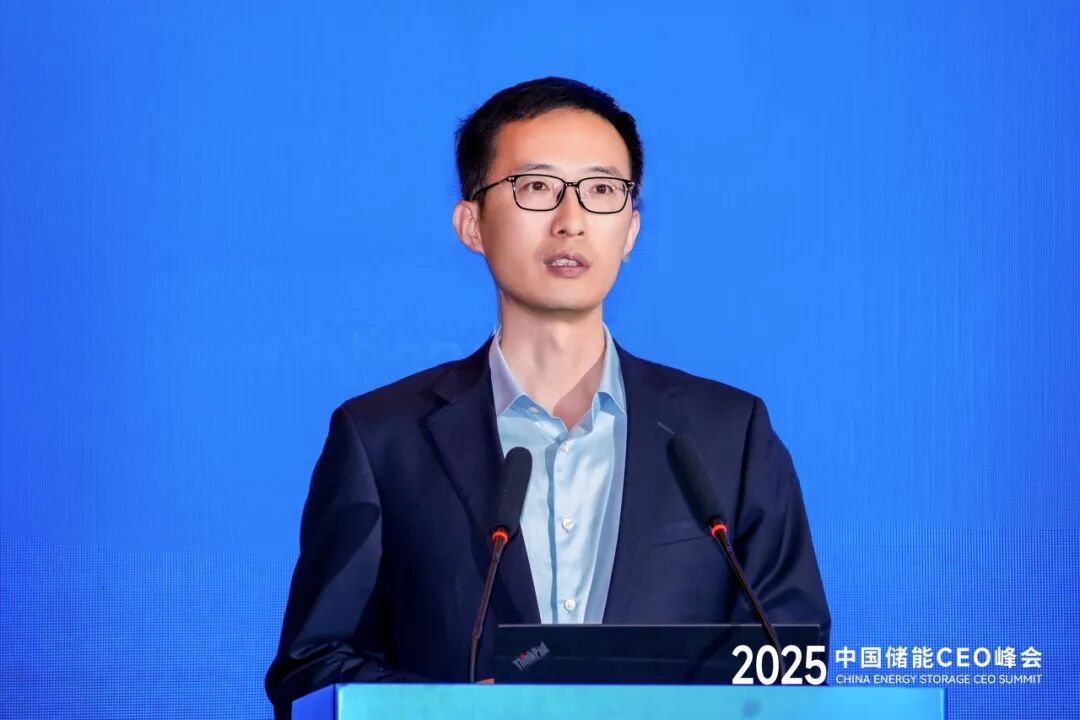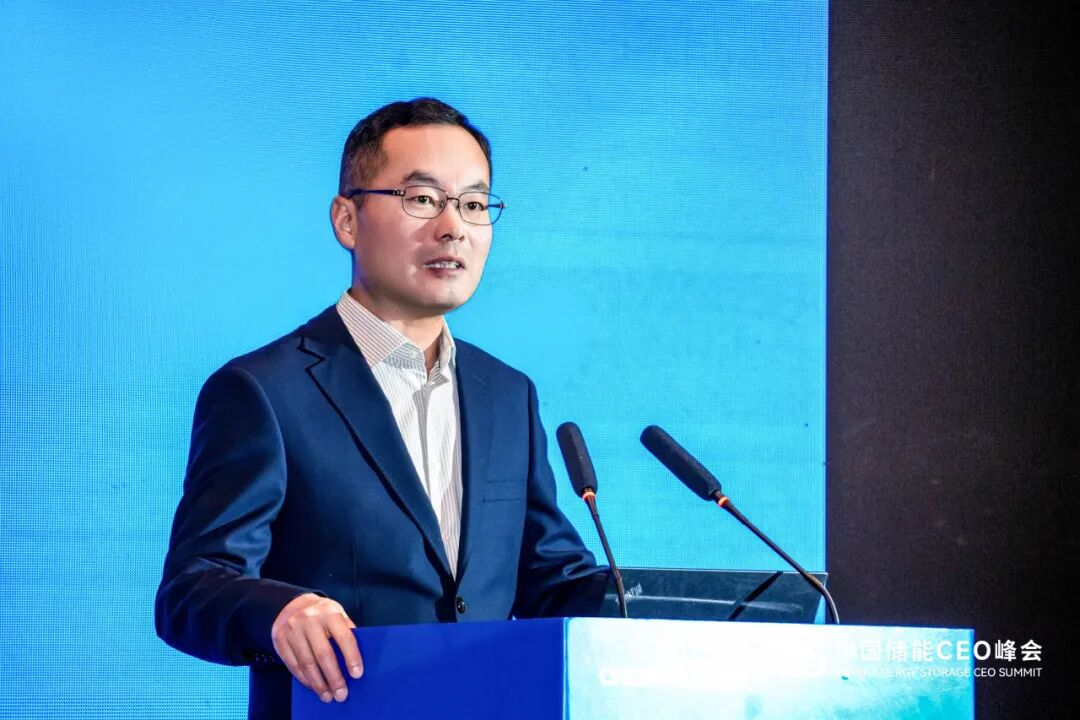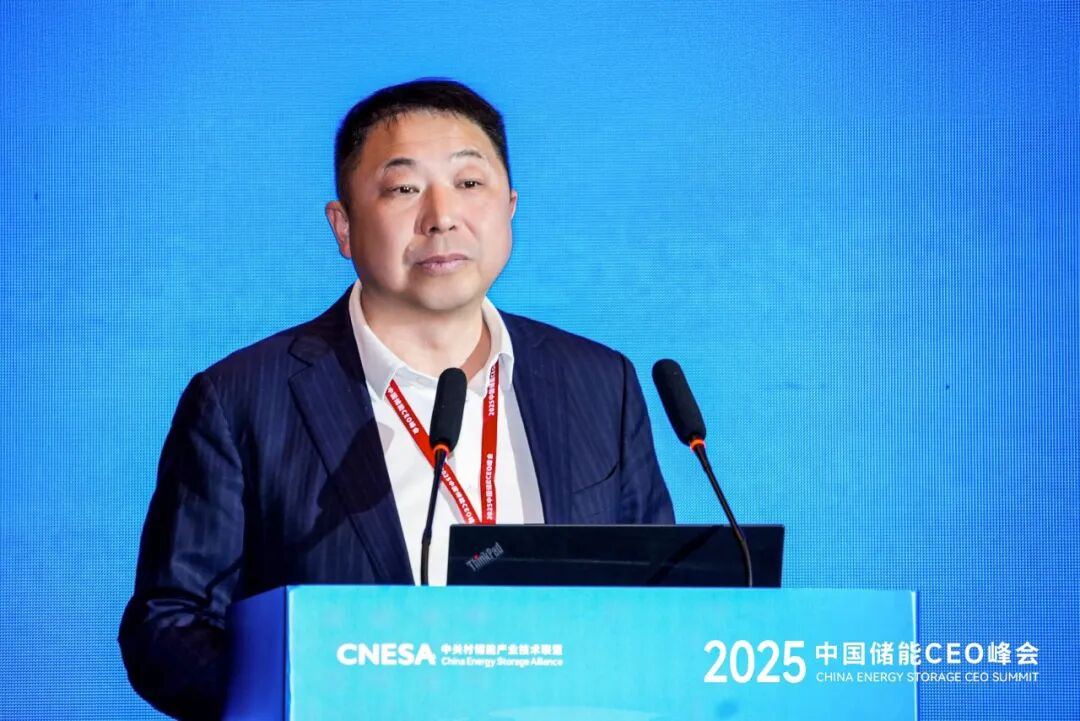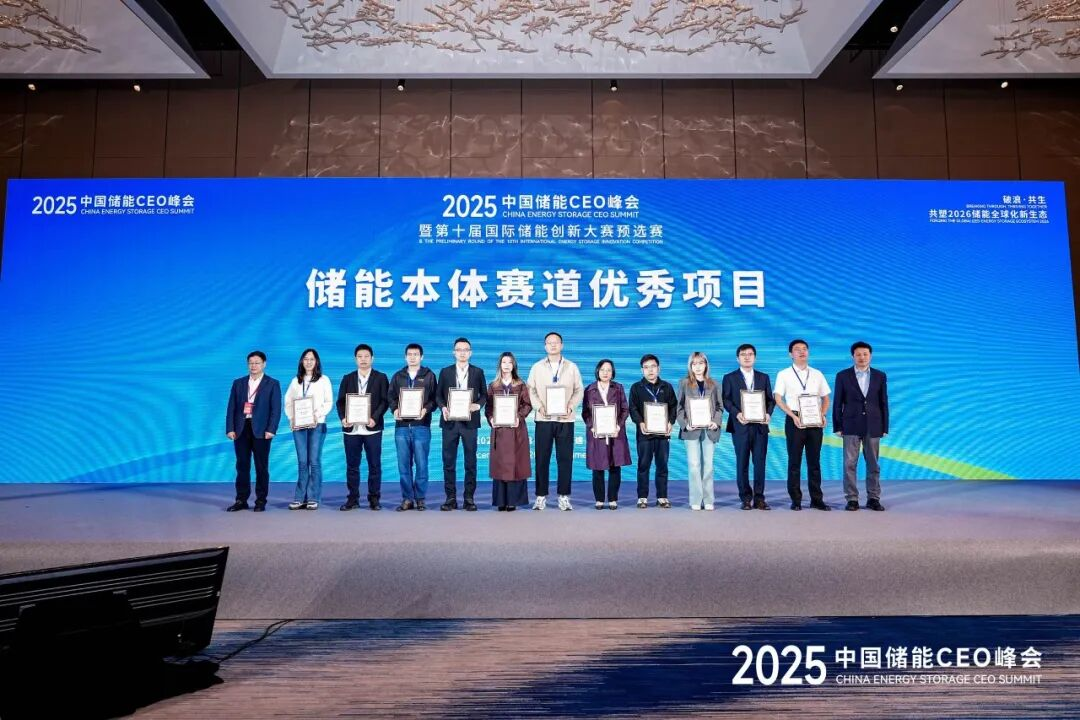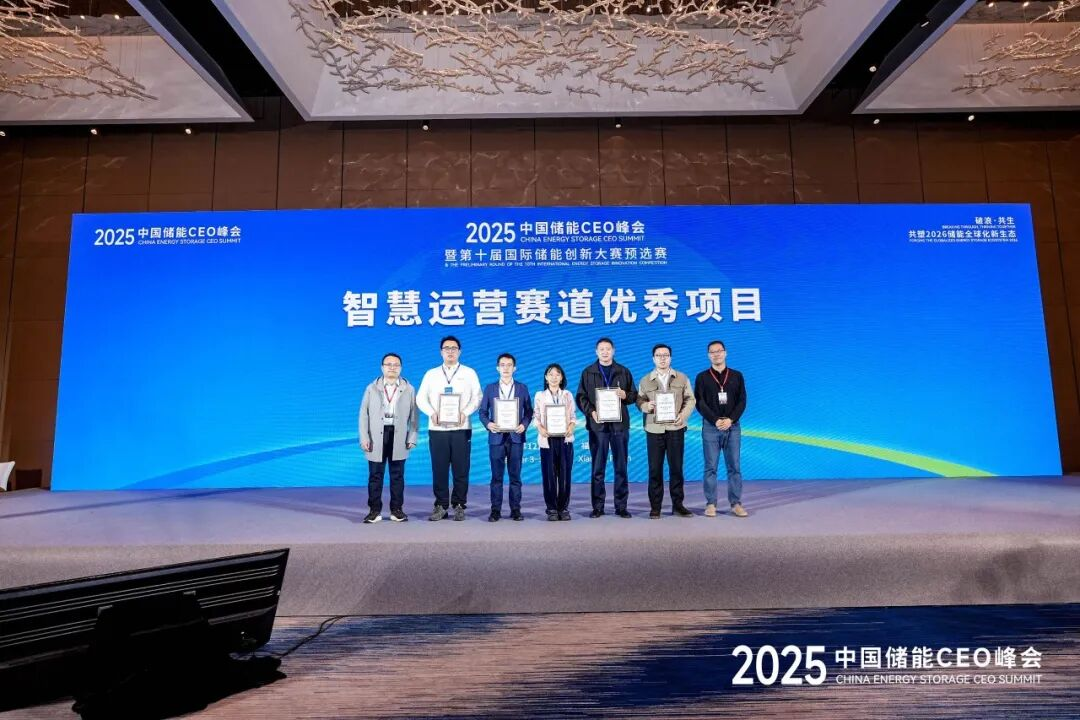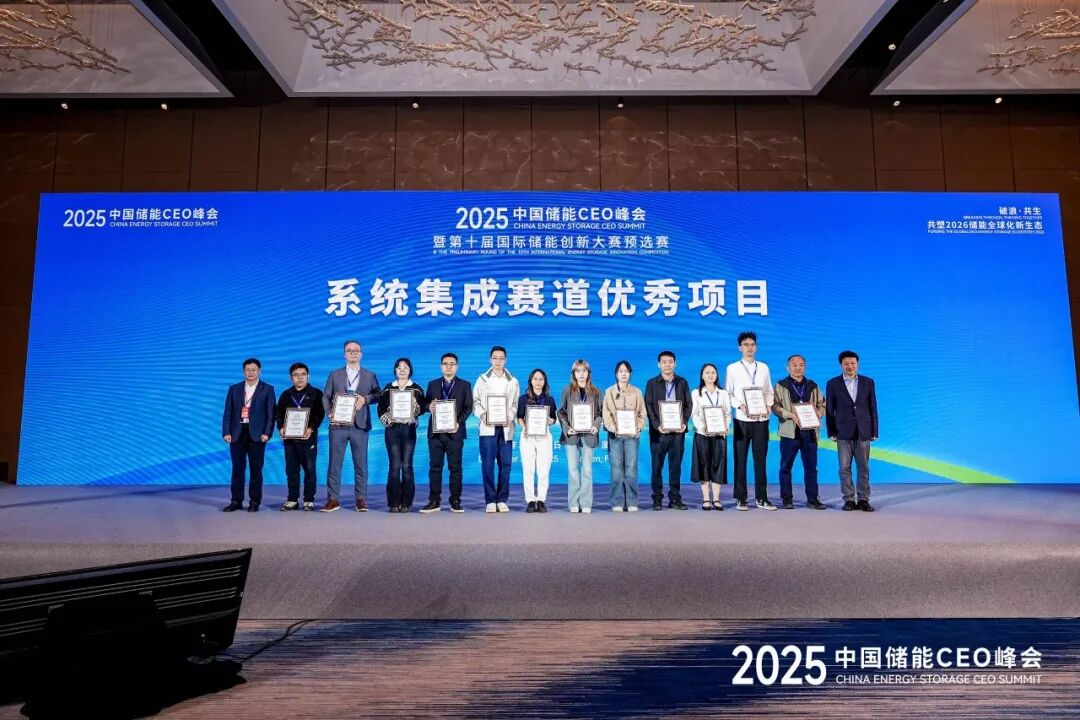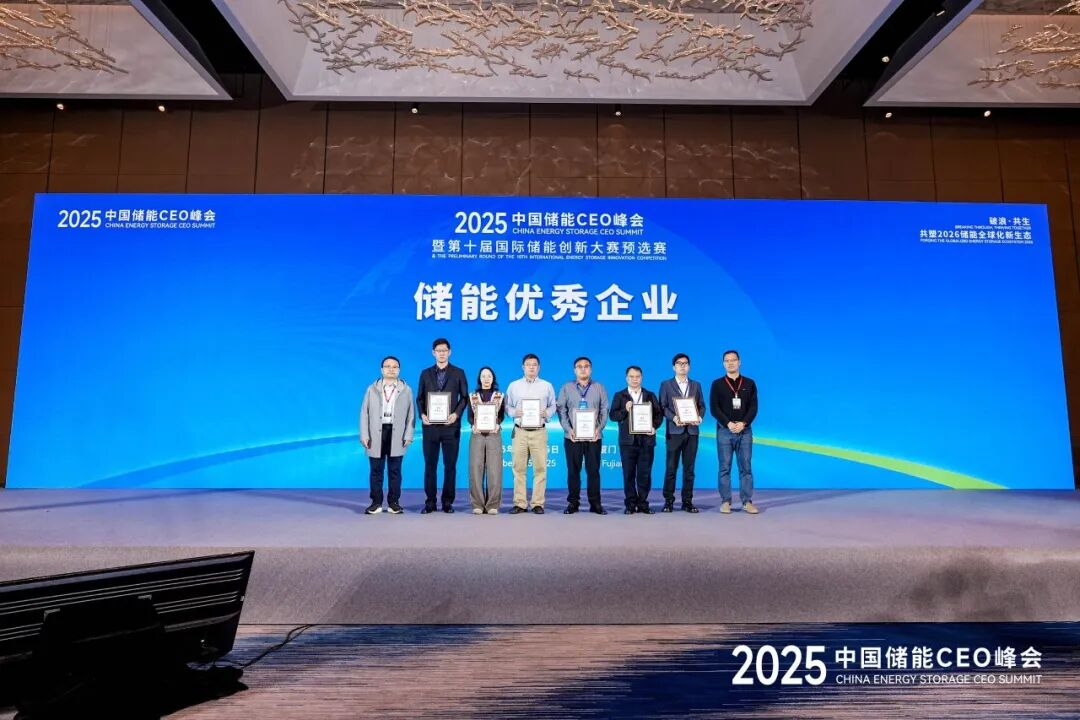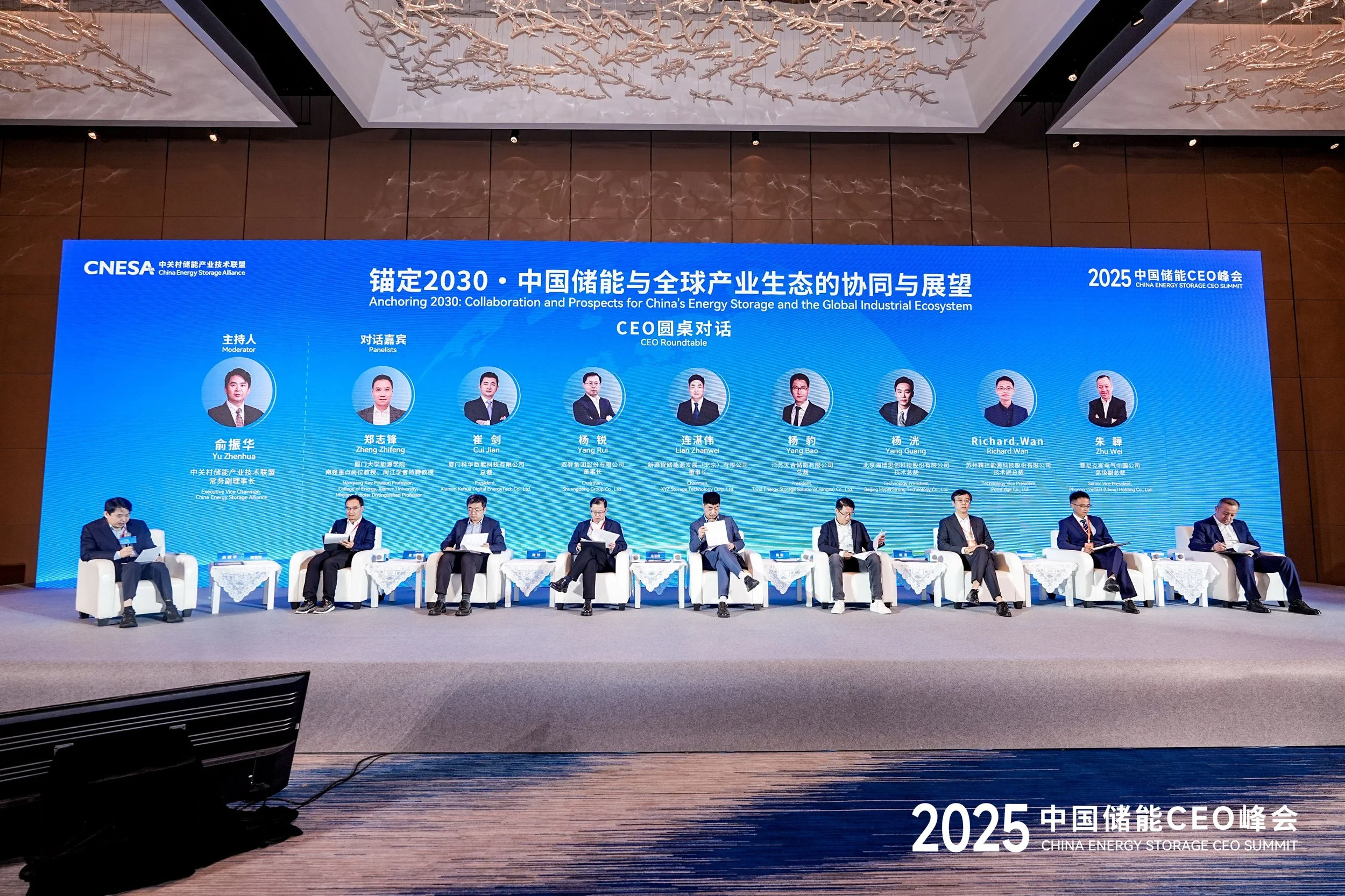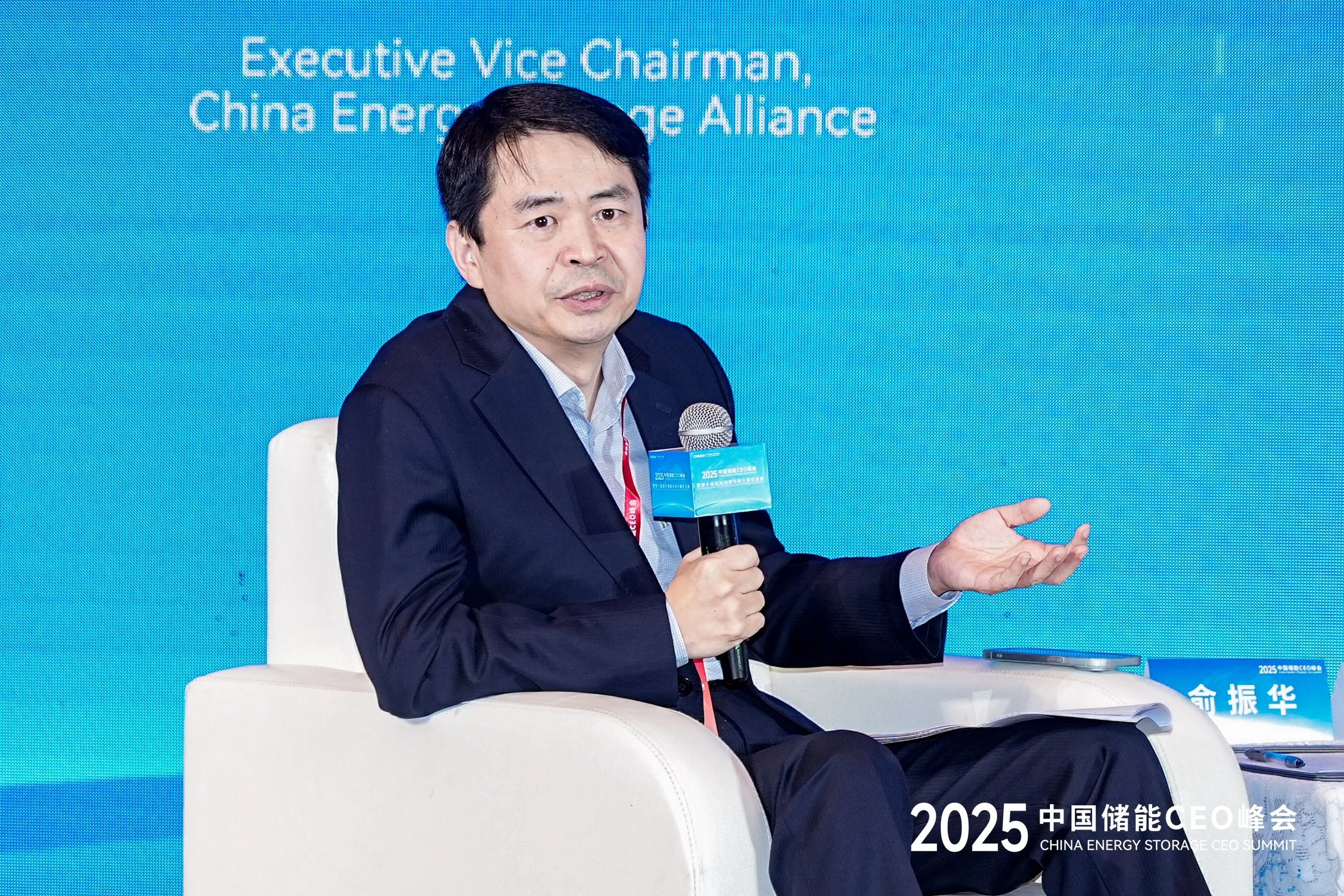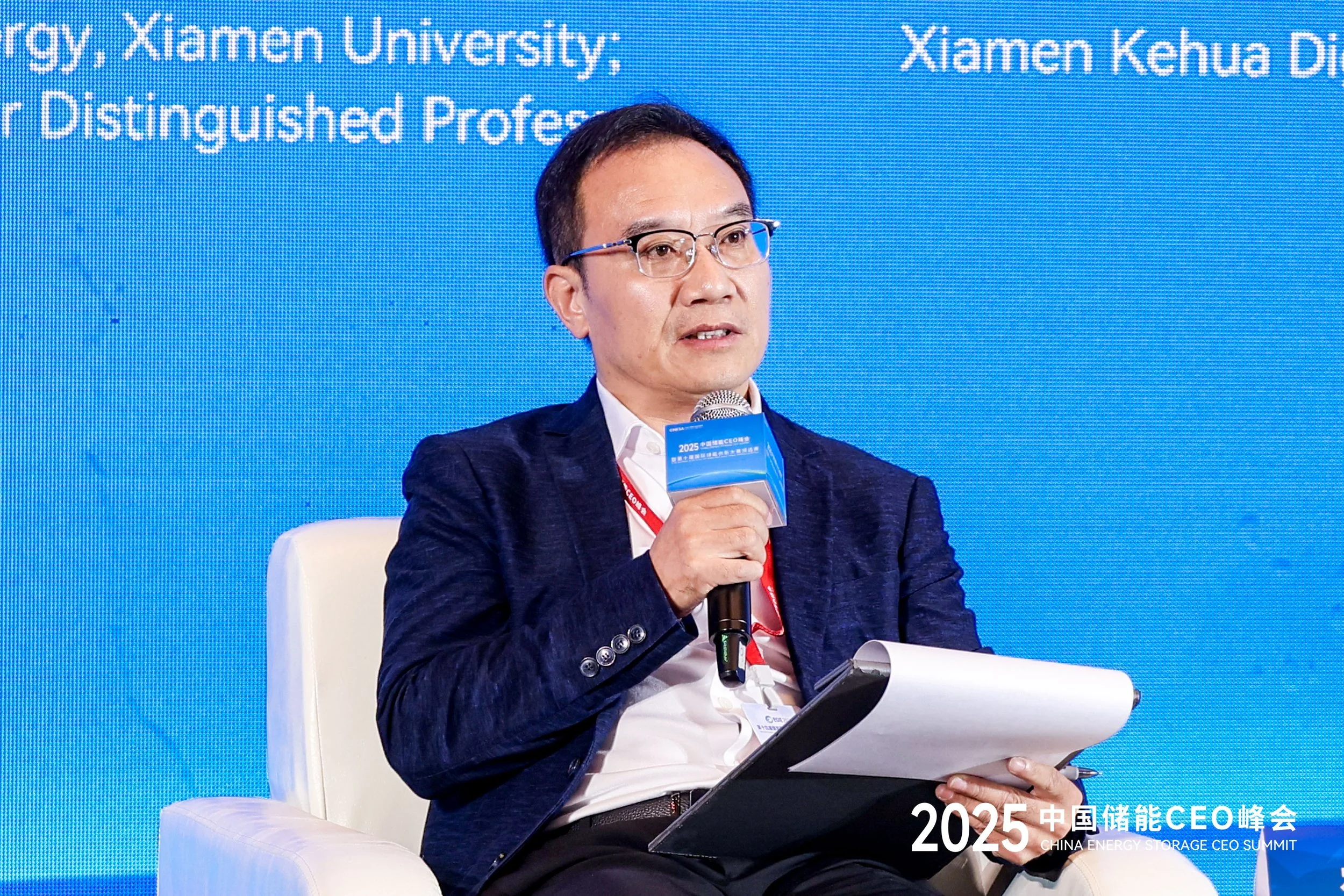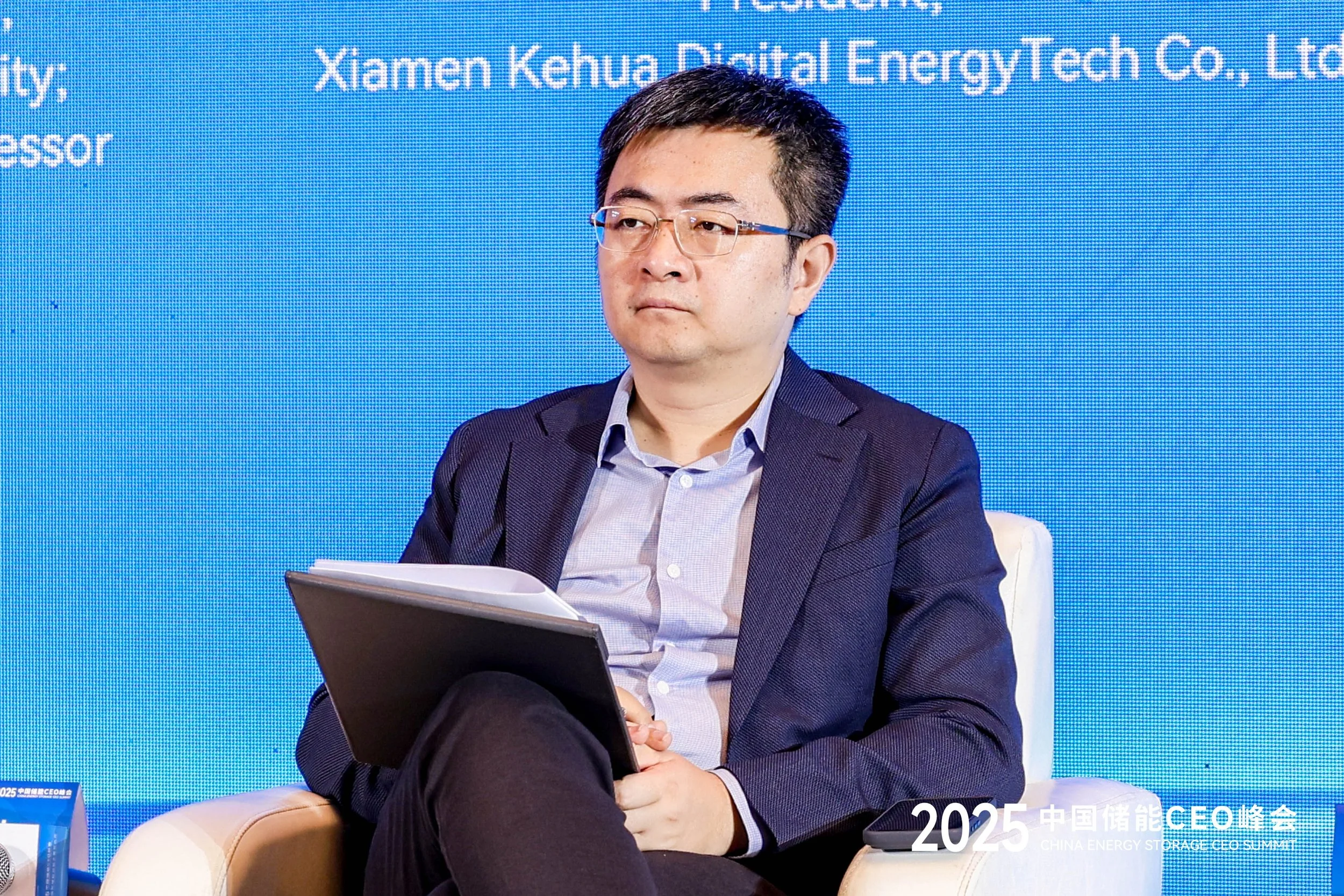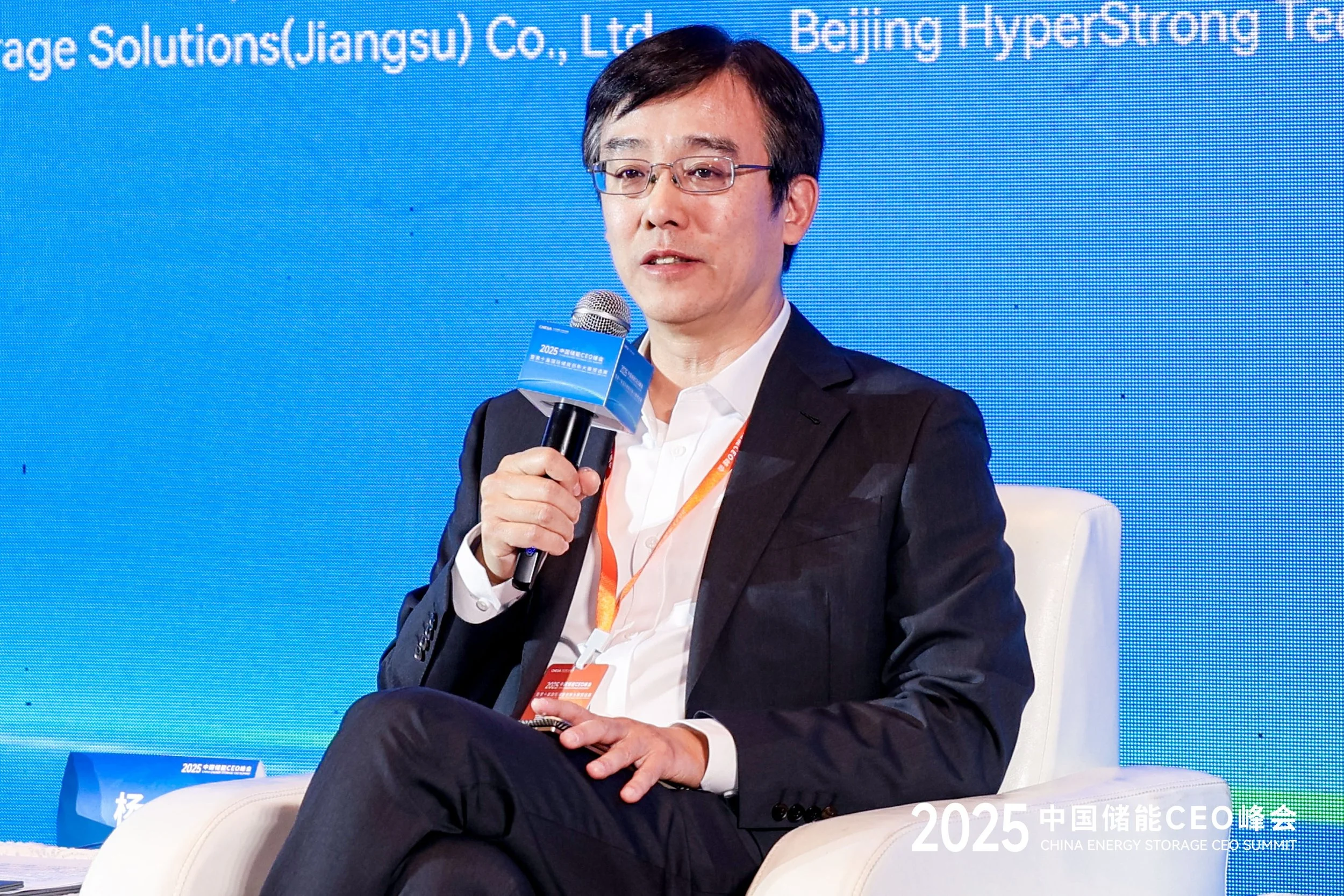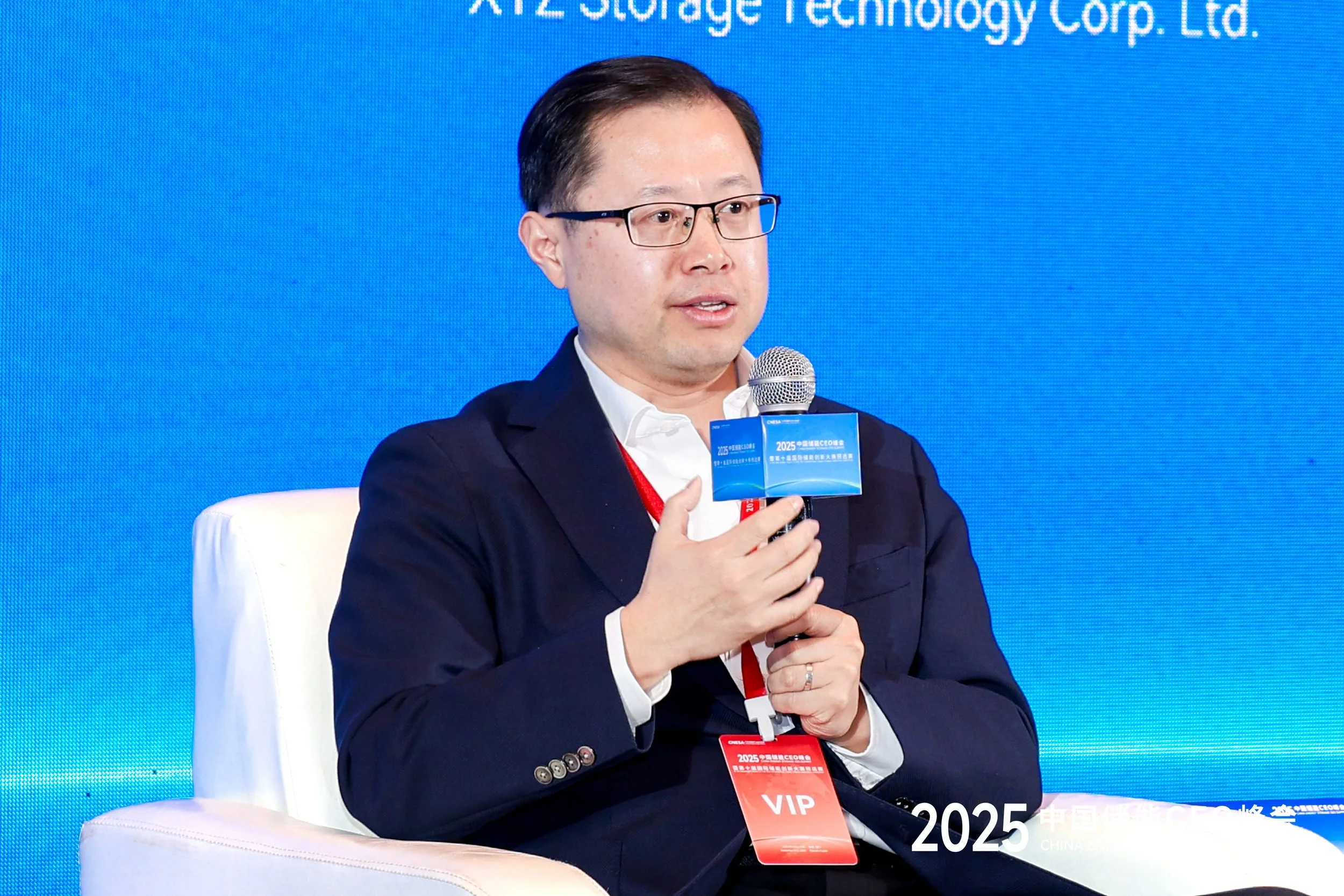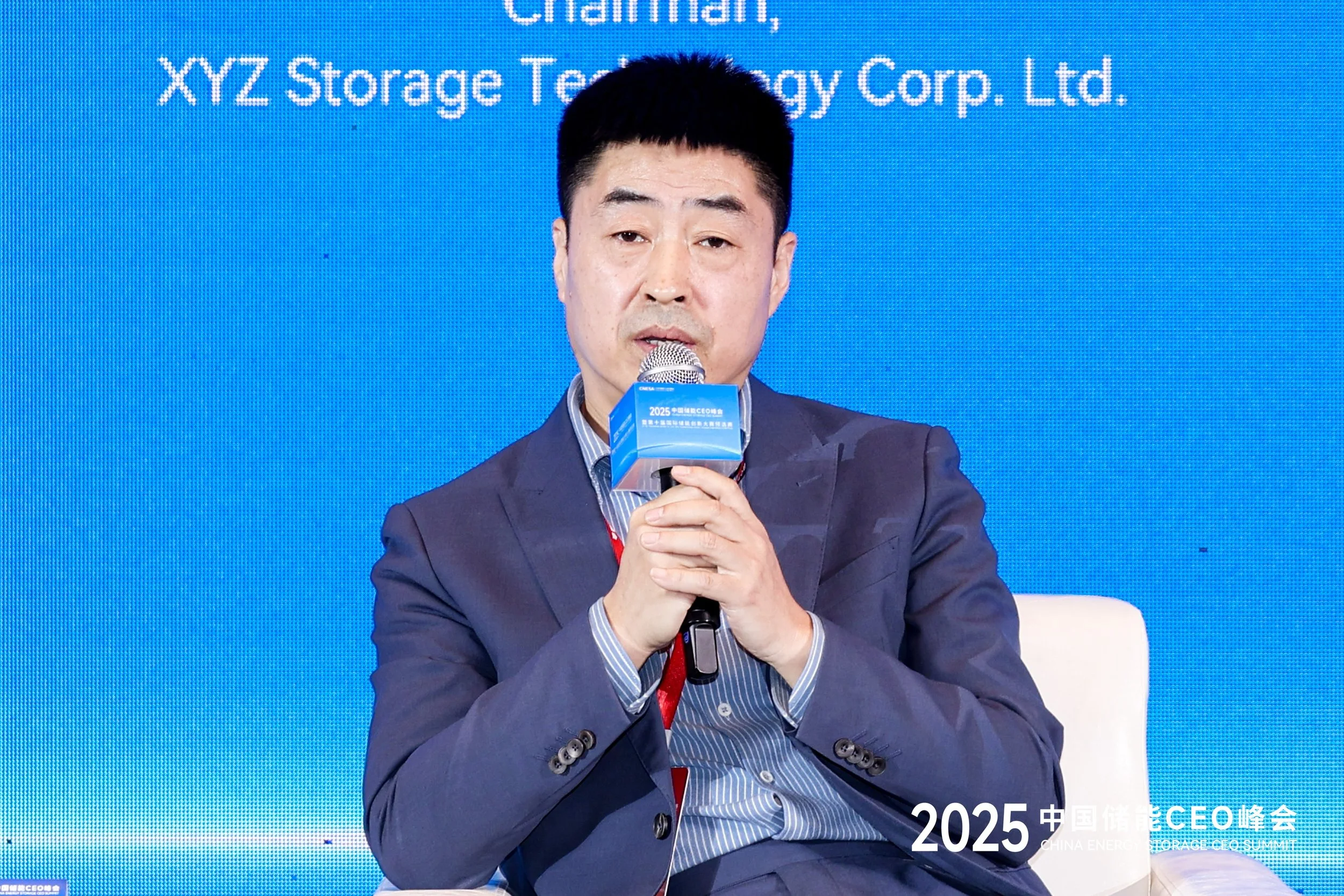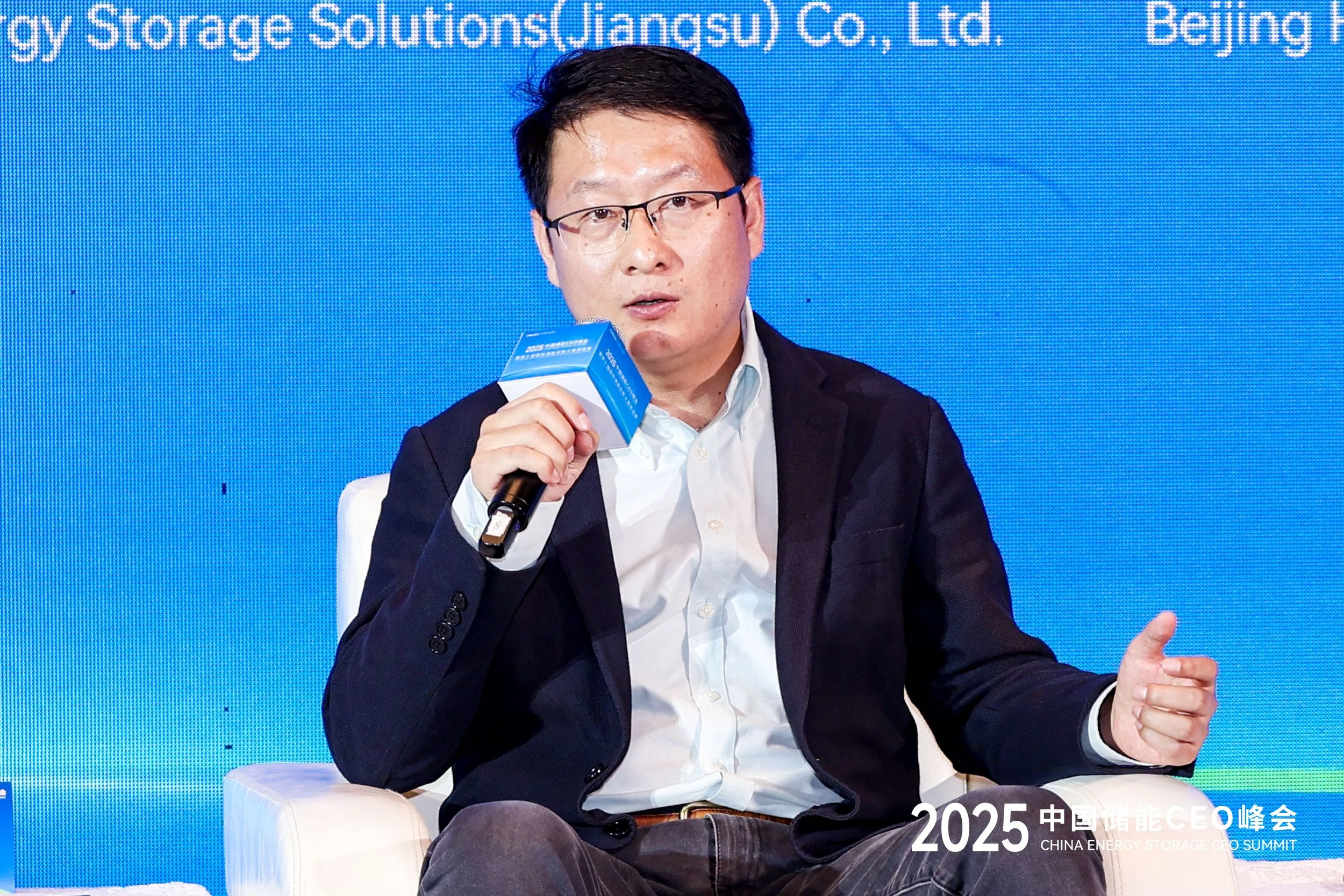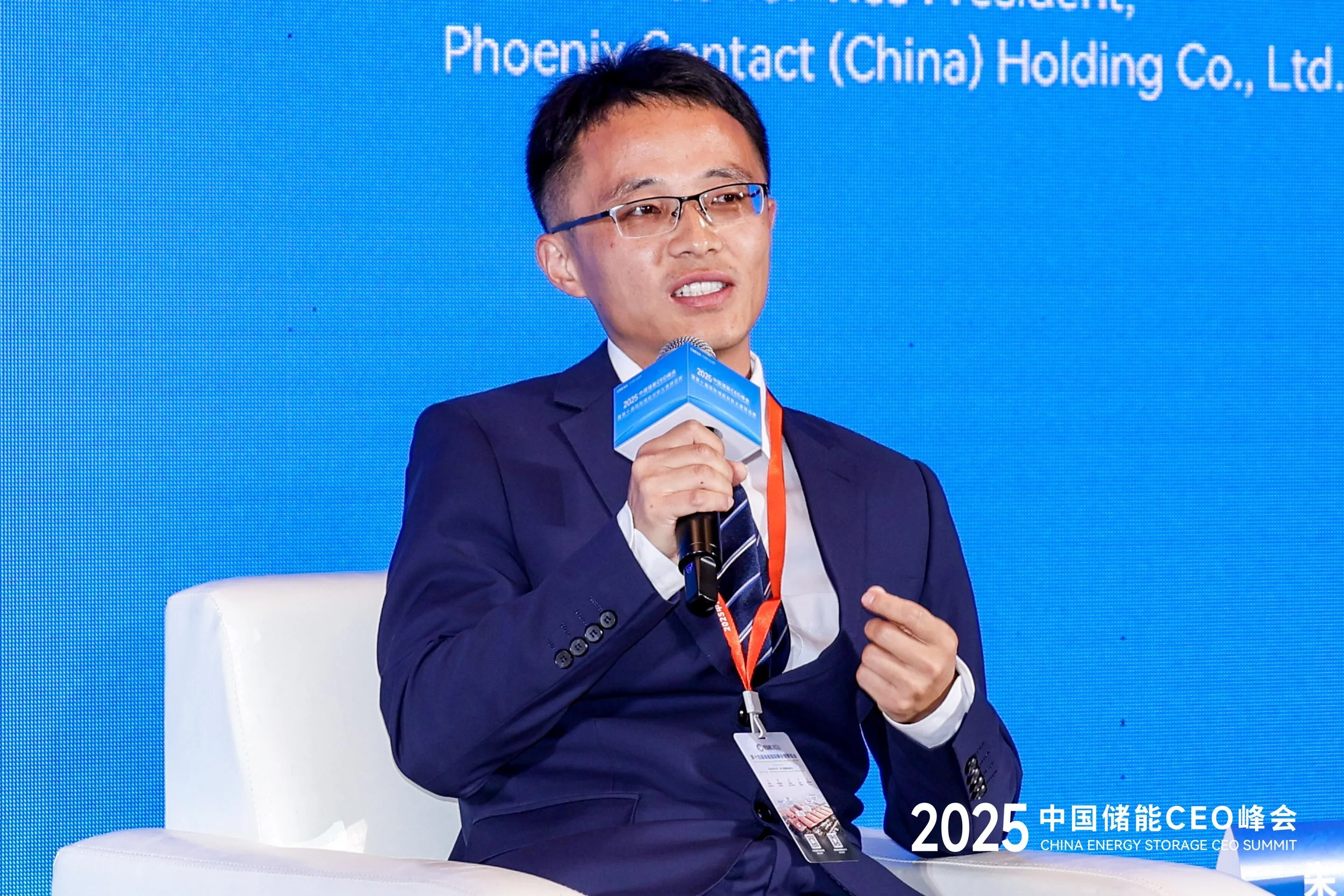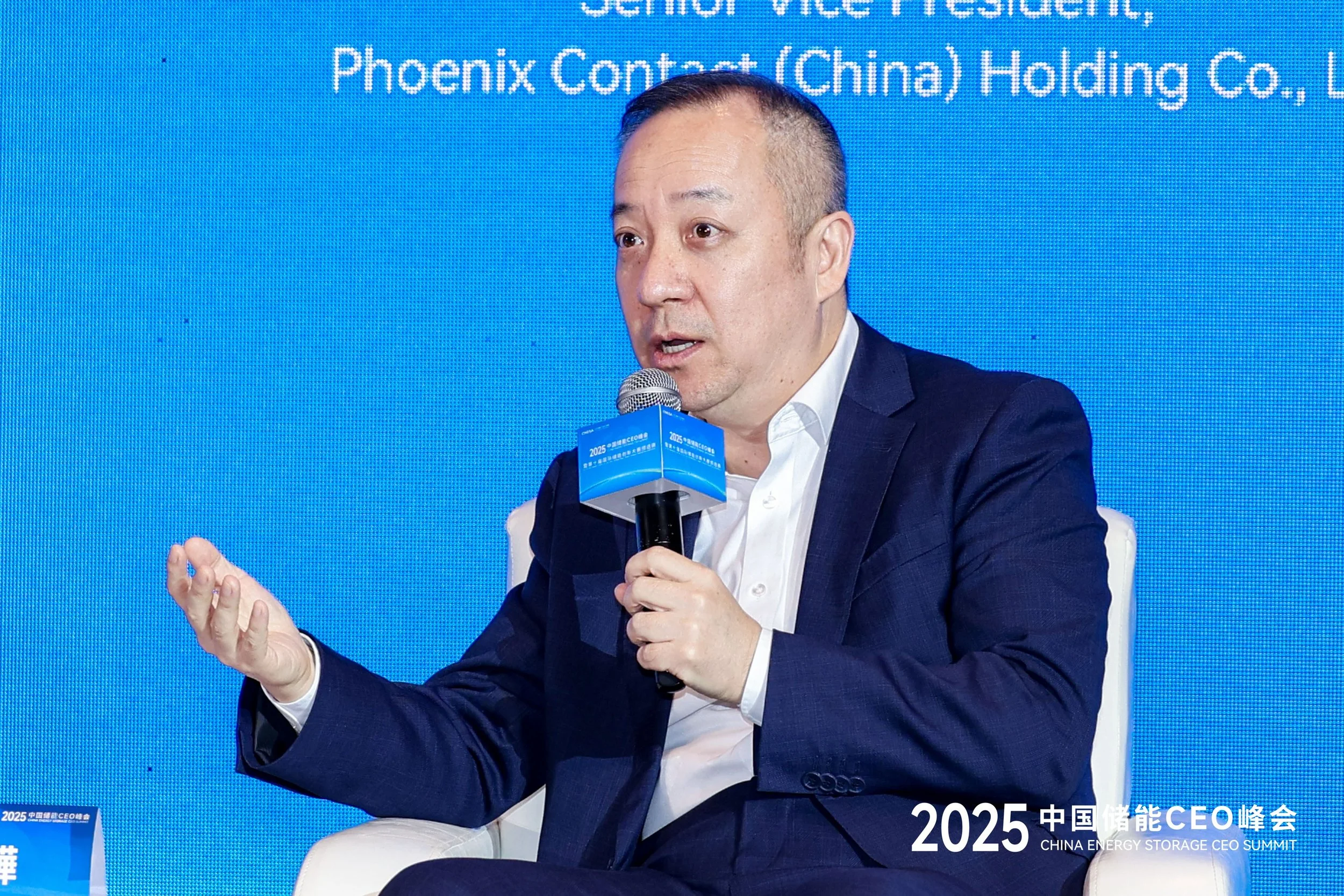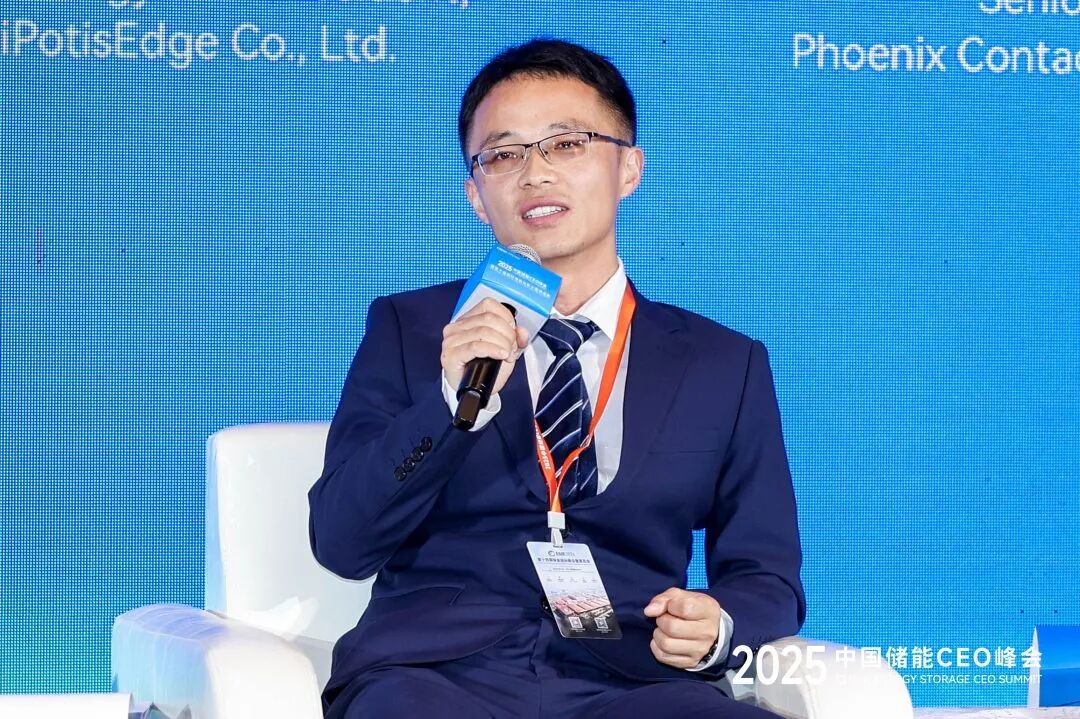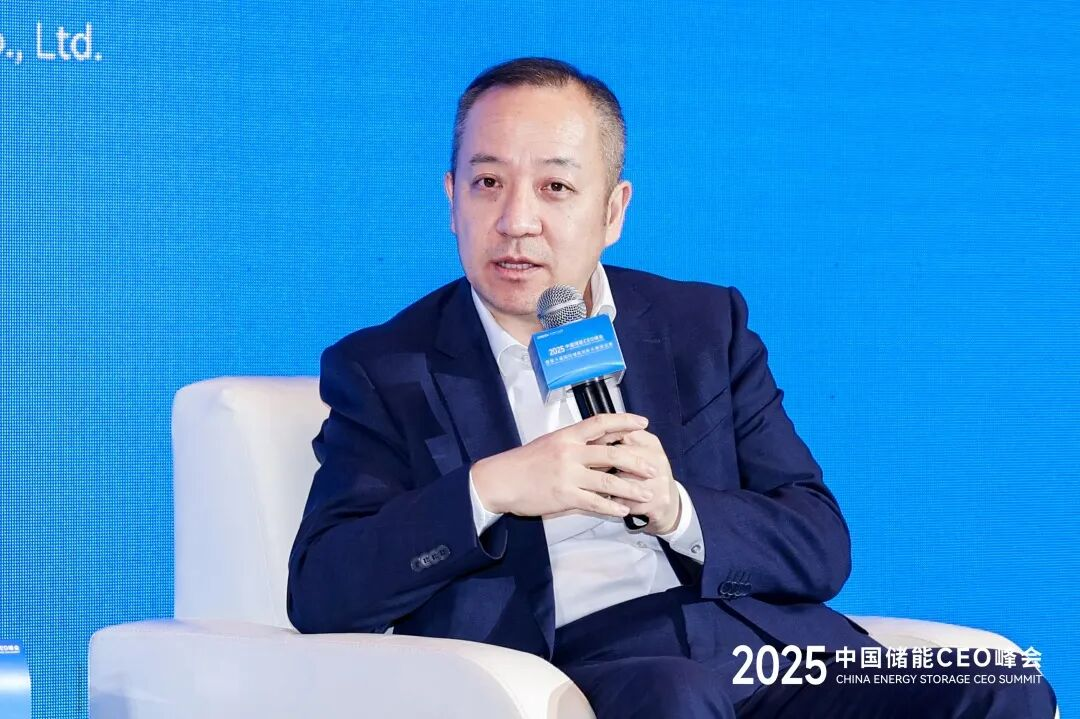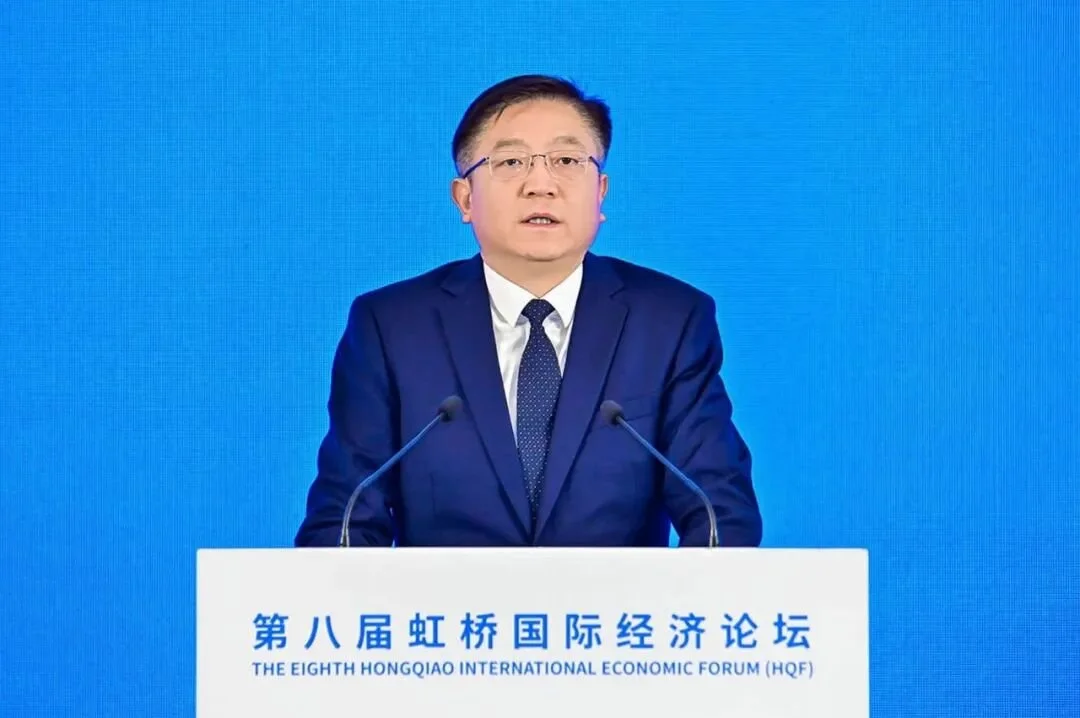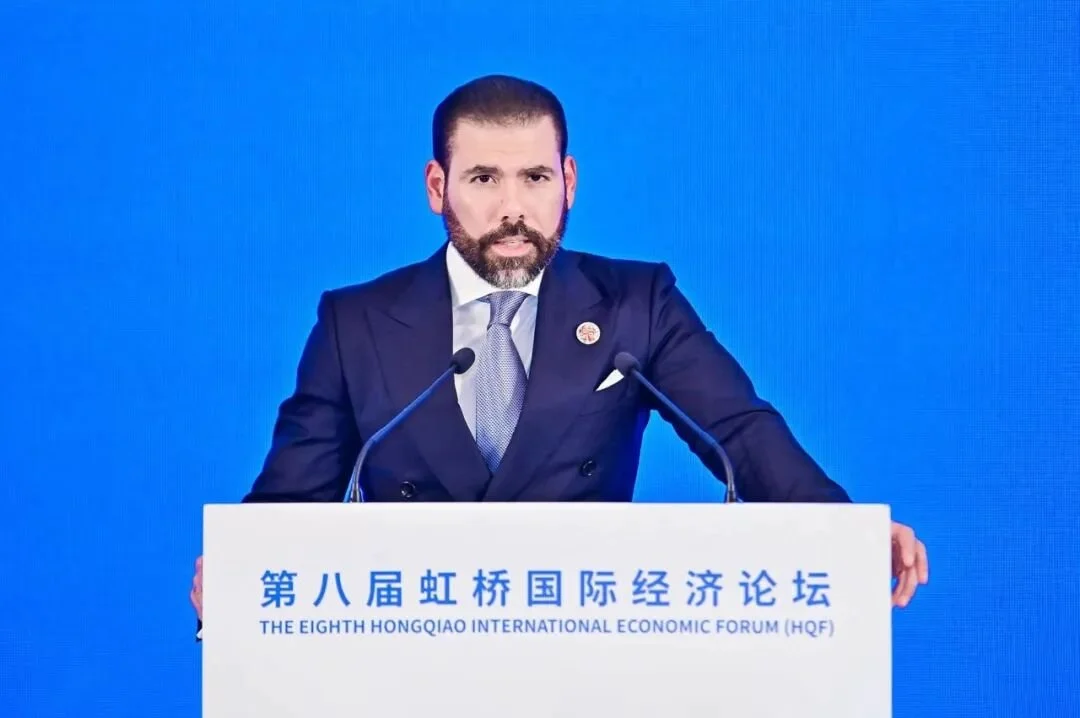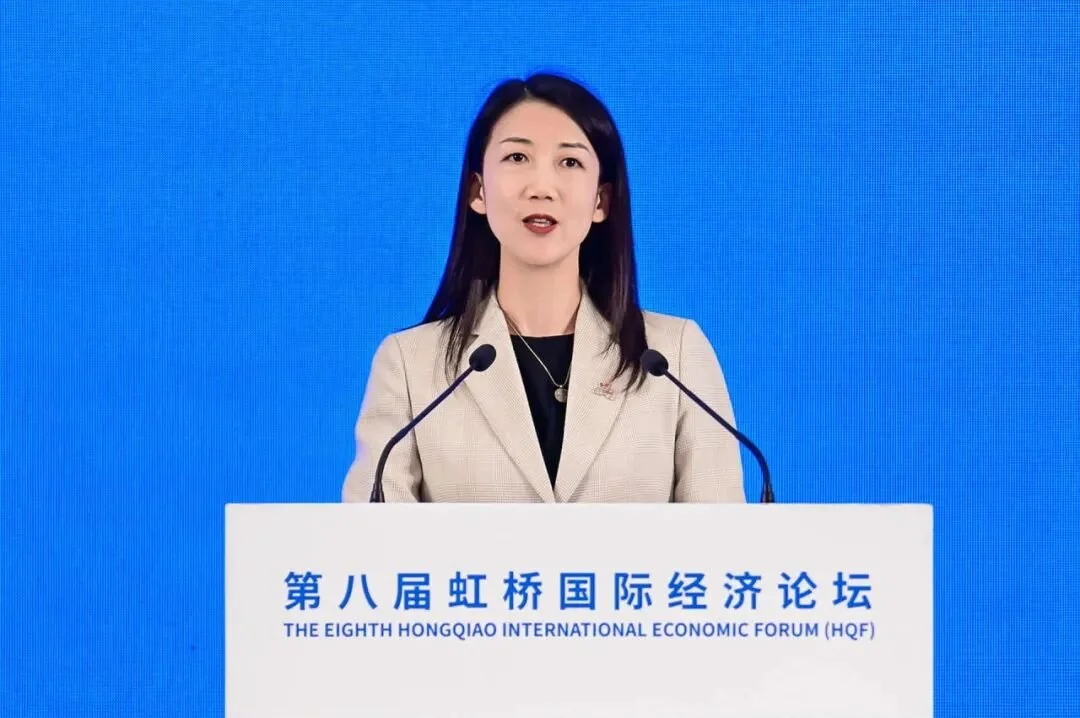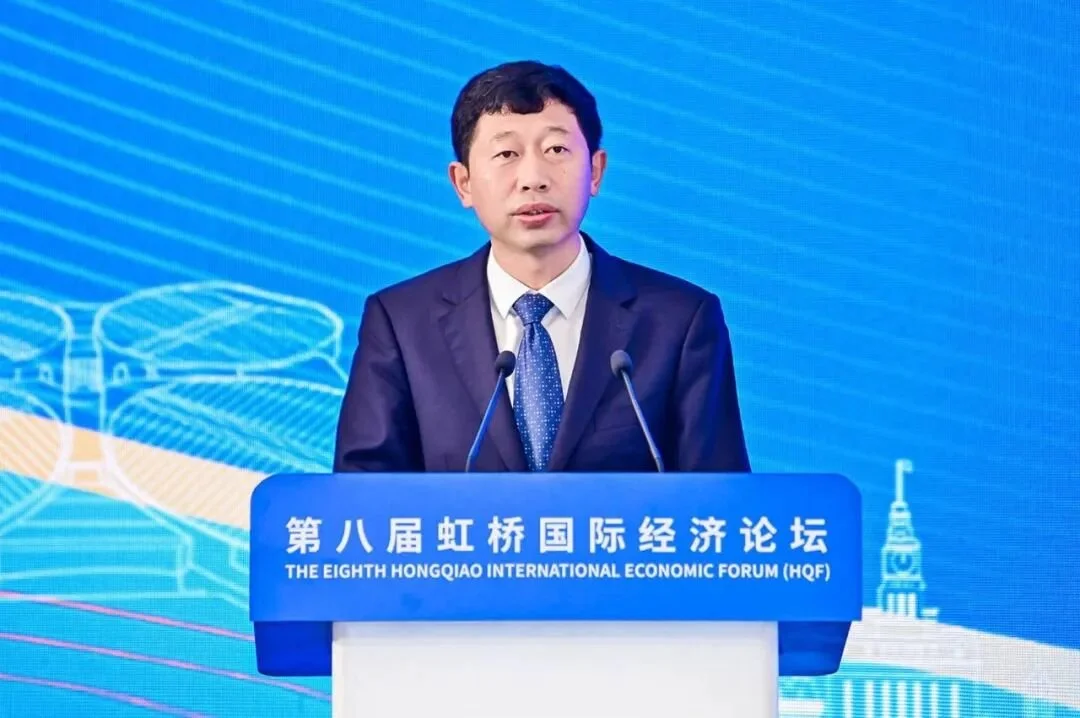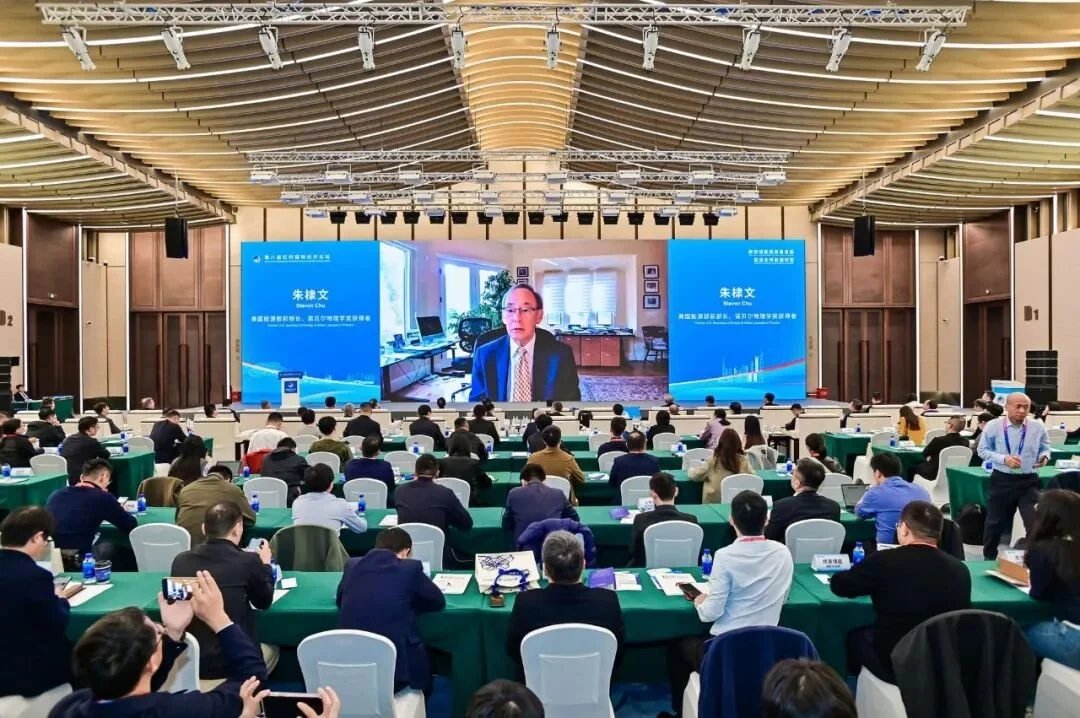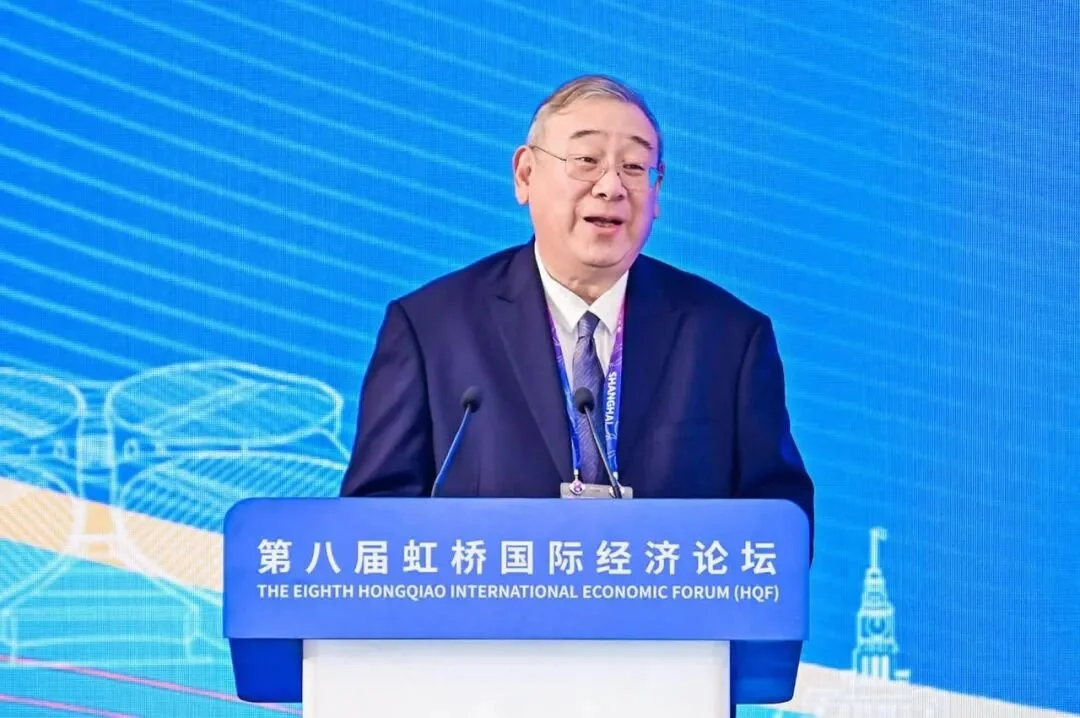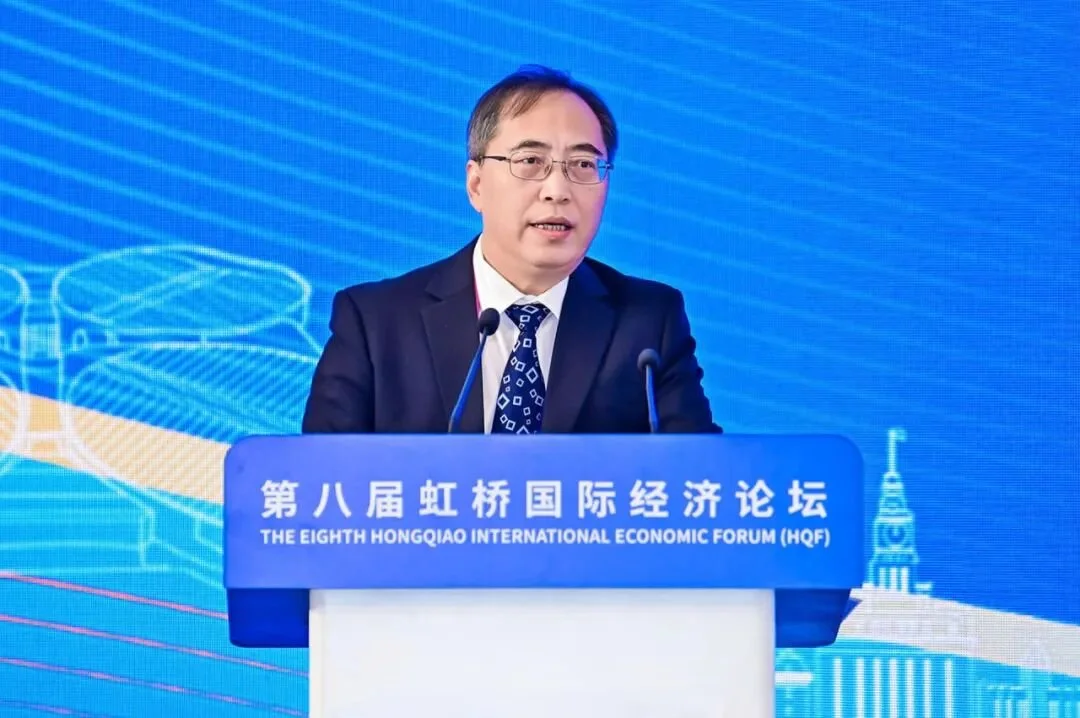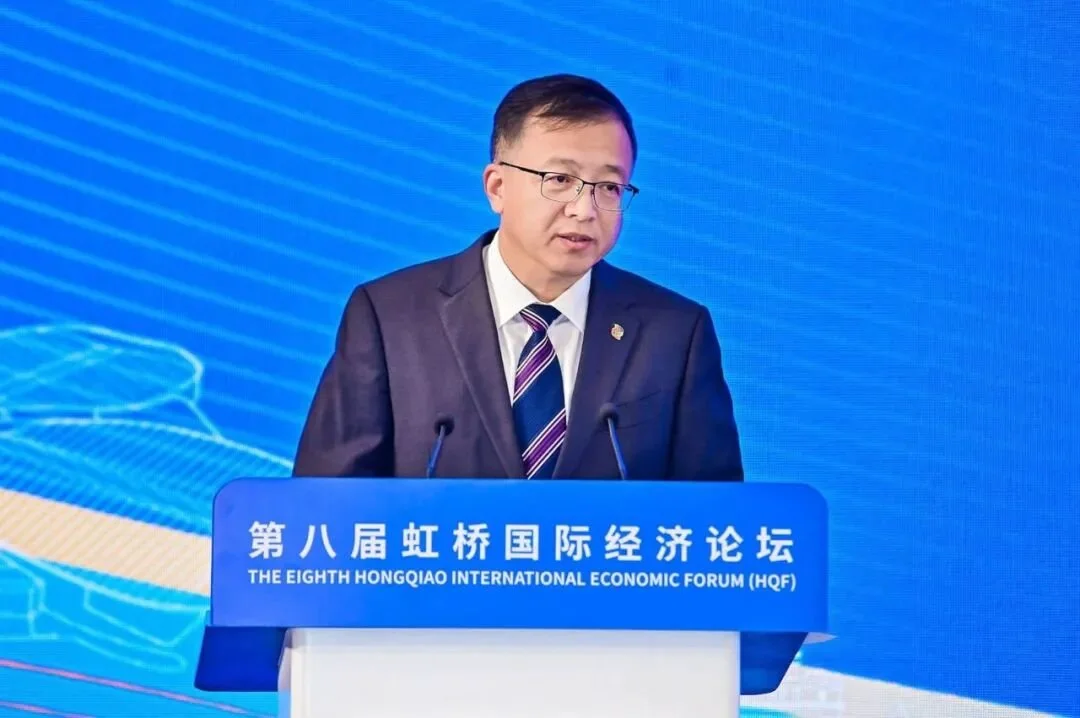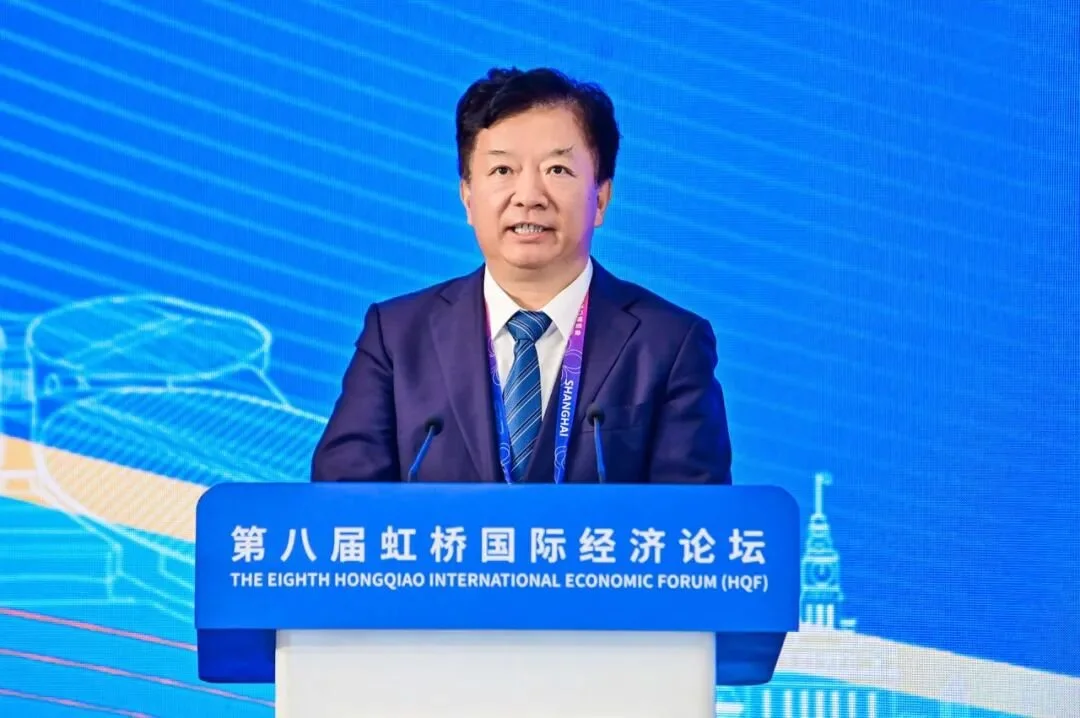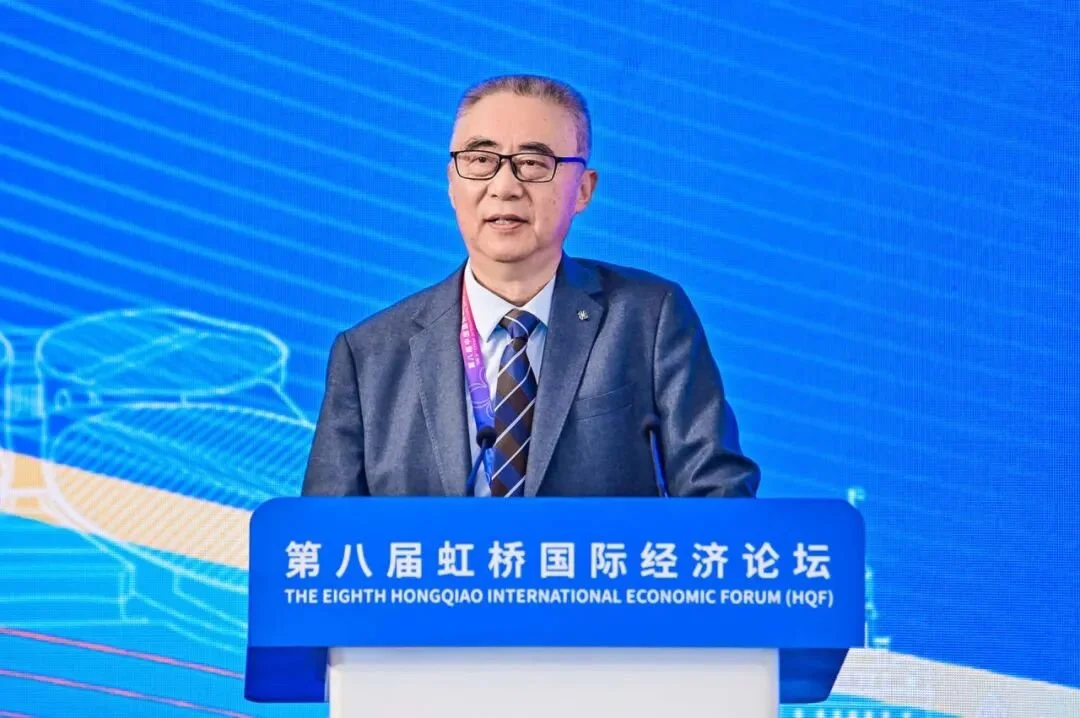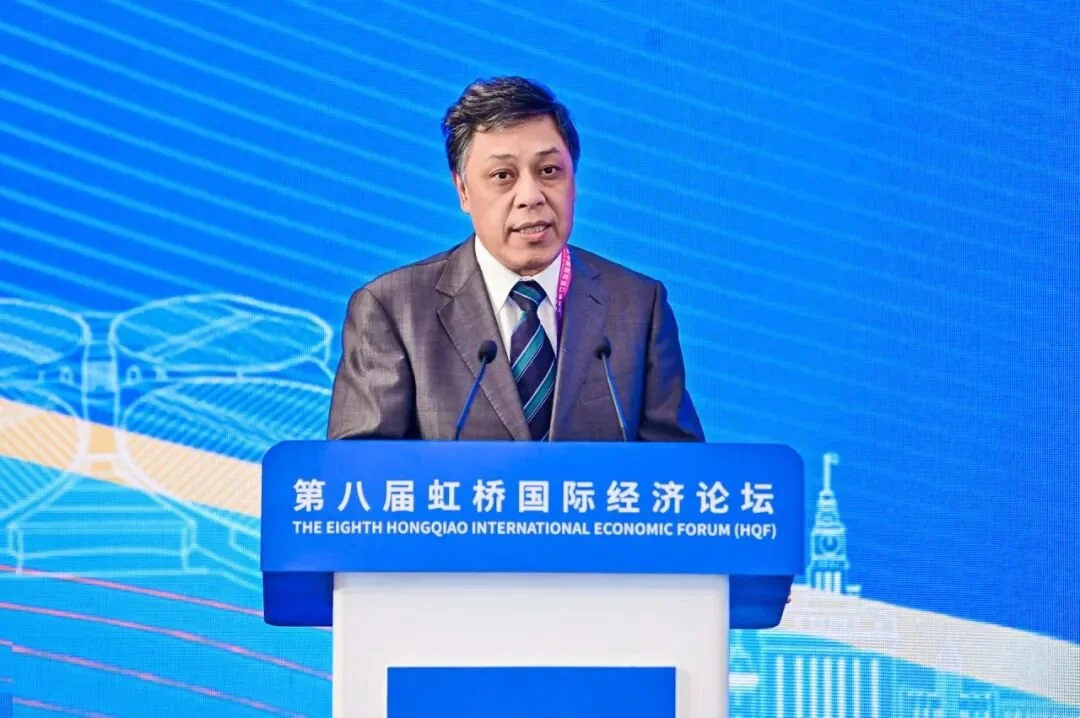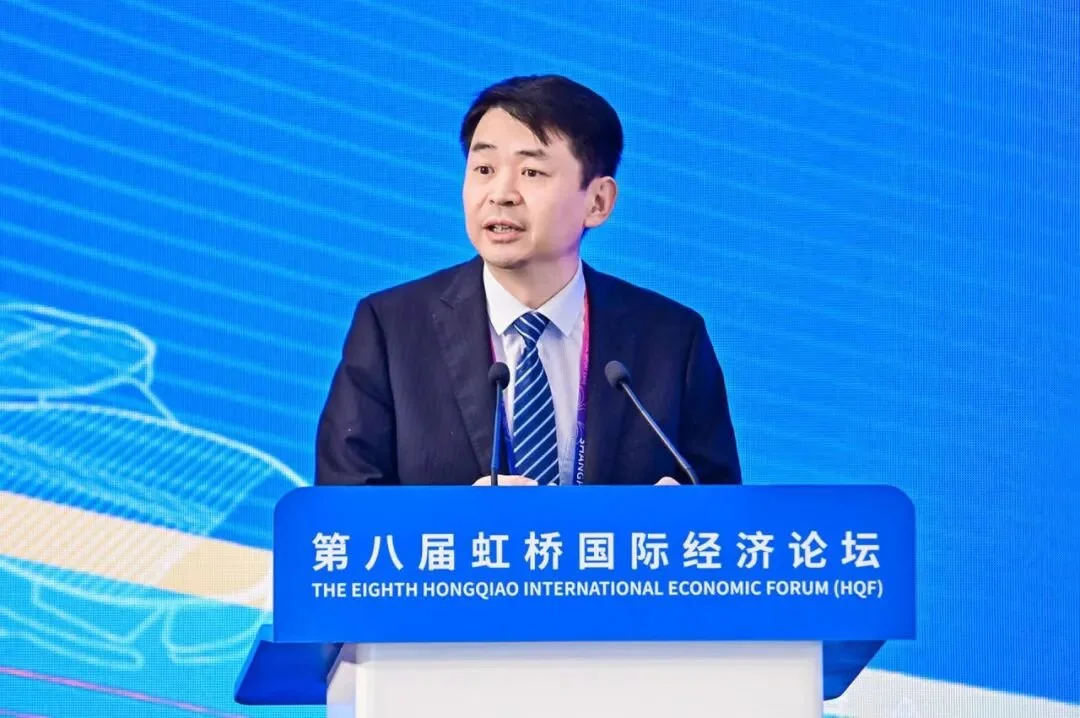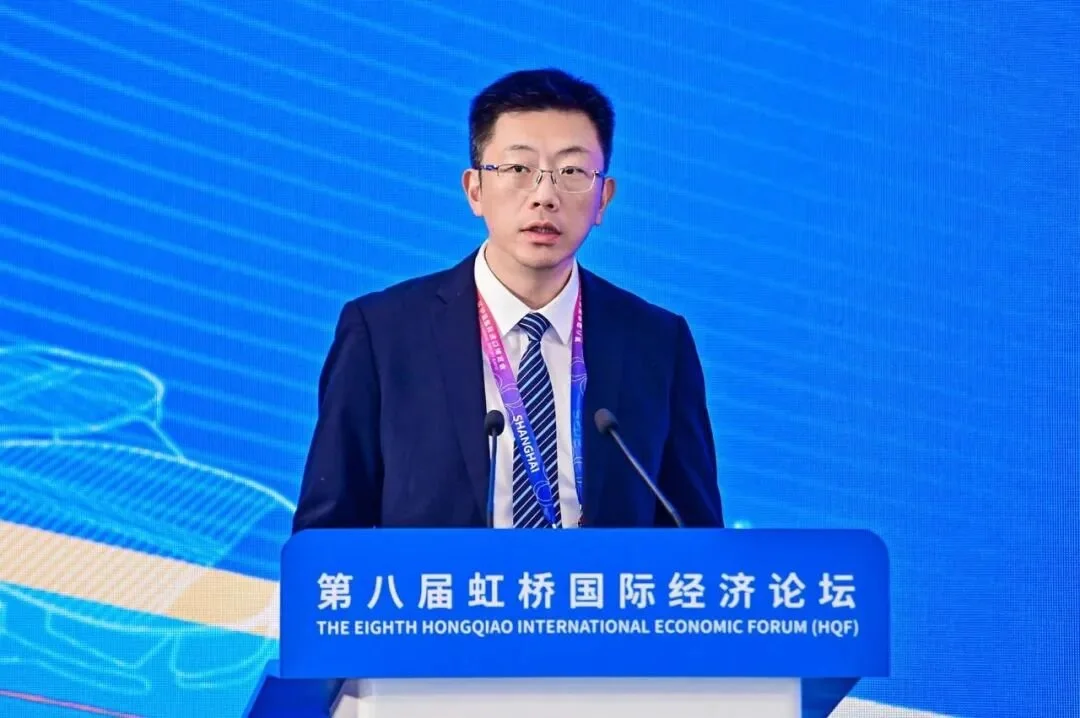During the 14th Five-Year Plan period, China’s energy storage technology mix witnessed noticeable changes where pumped hydro storage accounted for less than 40% for the first time while the new-type energy storage represented by lithium batteries saw explosive growth.
500MWh!BYD Energy Storage Has Commissioned Its Largest Energy Storage Project in East Europe
On January 8, 2026, a 500MWh standalone Battery Energy Storage System(BESS) project located at Maritsa East 3 in Bulgaria was officially commissioned. The project was the jointly developed by BYD Energy Storage and ContourGlobal under their strategic collaboration which is one of the largest standalone energy storage projects in East Europe.
Tianneng Signs a 1GWh Project in Malaysia, Build a benchmark for Integrated “Solar- Storage- Computing”Solutions
Recently, Tianneng Group signed a strategic agreement with NASDAQ-listed company VCIG Group. The two parties will build a 1GWh AIDC solar energy storage power station in Malacca, Malaysia. The project aims to address the high-energy-consumption challenge of AIDC and will be developed under an “EPC+F” model.
Amazon buys 1.2GW Sunstone solar-plus-storage project from bankrupt Pine Gate
Annual Power Cost Savings Exceed RMB 60 Million ! Great Power’s 107MW/428MWh Hydropower-based Aluminium User-side Energy Storage Project is Commissioned
CORNEX Secures a 6GWh Energy Storage Order in Egypt, Successfully Expanding Into the North African Market
On January 16th, Cornex New Energy signed a strategic cooperation agreement with Egypt-based partners WeaCan and Kemet.
The agreement was signed by Dai Deming, chairman of Cornex New Energy and Ahmed Salaheldin Abdelwahab Elabd, Chiarman of the Board of Kemet. The signing ceremony was witnessed by Moustafa Kamal Esmat Mahmoud, minister of Egypt’s Ministry of Electricity and Renewable Energy, along with other government officials and senior executives from relevent enterprises.
100MW/200MWh! Sineng Electric Supports Commissioning of Phase I of Nanlang Energy Storage Power Station
The Phase I 100MW/200MWh Nanlang energy storage power station, supplied by Sineng Electric, has now been successfully commissioned and put into operation. As the first large-scale standalone energy storage project on the grid side to be completed and commissioned in Zhongshan, China, the facility not only injects enhanced flexibility into the regional power grid, but establishes efficient and reliable revenue mechanism through an innovative frequency regulation service model.
500MW/200MWh! JD Energy’s First GWh-Level Project Successfully Grid-Connected
In December 2025, the 500MW/2000MWh energy storage project was successfully grid-connected in Dengkou, Inner Mongolia. The energy storage station, standing proudly under the winter sun, is the first GWh-level project delivered by JD Energy. It not only set a new record for the scale of a single project but marked a significant milestone in the company’s development with its outstanding construction achievements.
2025 Marks the First Year of Mass Production for Large Energy Storage Cells! 500Ah+ Mass Deliveries, ESIE 2026 Energy Storage Expo Invites Global Buyers to Explore New Opportunities
2025 marks a pivotal year for the energy storage industry. The large energy storage cells, which were once limited to “theoretical parameters”, will officially bid farewell to the technical competition phase and enter the practical testing stage of capacity release, yield improvement, and project implementation. Leading enterprises like CATL, EVE, Envision, HTHIUM, and SUNWODA have successively achieved mass production and delivery, and with the intensive landing of GWh-level strategic cooperation and accelerated expansion into overseas markets, this marks the transition of large-capacity cells from lab prototypes to commercial applications. The speed at which energy storage systems are evolving to higher energy density and lower cost has far exceeded industry expectations.
Sungrow’s First Energy Storage Plant in the Middle East Launched,with an Annual Capacity of 10 GWh
Egypt has taken a major step toward accelerating its clean energy transition, as Chinese energy storage leader Sungrow and Norwegian renewable developer Scatec partner with the Egyptian government to deliver large-scale solar+storage projects and establish the Middle East’s first battery energy storage manufacturing base, with a planned annual capacity of 10 GWh.
4.8 GWh Installed: Beijing KeRui Supports the Grid Connection of Two Major Grid-Side Energy Storage Projects in Inner Mongolia, Chi
China Mingyang Longyuan’s First 100MW/400MWh High-Voltage Cascade Independent Energy Storage Project Achieves Full-Capacity Grid Connection
Mingyang Longyuan has built a major milestone in China’s energy storage sector with the successful full-capacity grid connection of its first 100MW/400MWh high-voltage cascade independent energy storage project in Ordos, Inner Mongolia. The project’s commissioning highlights the company’s technological strength in large-scale, high-efficiency, and highly reliable energy storage solutions, while reinforcing the critical role of advanced storage systems in supporting grid stability and renewable energy integration.
12.8 GWh Energy Storage Cluster Connected to the Grid AI-Powered Energy Storage Reshapes the Future of New Power Systems
The world’s largest single-site electrochemical energy storage power station—the Envision Jingyi Chagan Hada Energy Storage Power Station—was successfully connected to the grid, completing a 12.8 GWh AI-powered energy storage cluster in Inner Mongolia. The project sets new global benchmarks for scale, grid-connection speed, and system reliability, while demonstrating advanced grid-forming capabilities that enable rapid commissioning, deep grid interaction, and large-scale renewable integration.
Google Acquires U.S. Energy Storage Giant for $4.75 Billion
As the global tech giants engage in a frenzied race for AI computing power, a more fundamental battle over “energy supply” is unveiling. Google’s multi-billion dollar power play procured not just an energy storage company but the the “electricity passport” towards the AI-driven future.
I. Blockbuster Acquisition: Acquisition of U.S. Energy Storage Giant for $4.75 Billion
On December 22, Alphabet, Google's parent company, announced that it will acquire Intersect Power, a leading U.S. battery energy storage system developer and operator, for $4.75 billion in cash plus the assumption of debt.
What to watch:
Targeted Assets: The acquisition does not cover the already operational assets but targets its future clean energy power generation projects, data center and energy storage system, totaling 10GWh.
Strategic intention: directly circumvent the crowded traditional grid and build an exclusive “power generation + energy storage” closed loop for AI data center.
The Alphabet CEO said: “ Intersect will help us synchronize the creation of power generation and energy storage system so as to match the added data center load and reshape energy solutions of AI data center.
II. Urgency: The high energy consumption “black hole” of AI data center
It is the tremendous energy pressure alongside generative AI behind the acquisition.
Surge in electricity consumption: the electricity demand is estimated to grow manyfold of data center hubs including State of Texas and California in 2030.
Stringent Reliability requirement: The AI data center requires 99.999% power supply reliability, which is hard to satisfy for traditional grid.
Solutions: Battery Energy Storage System emerges as the key infrastructure to balance the intermittency of renewable energy and achieve 24/7 uninterrupted power supply.
III. Ecological Synergy: Tesla makes an indirect play and broaden the collaboration zone
It is noteworthy that Intersect and Tesla are long-term collaboration partners. Google’s move means Tesla will step into the collaboration zone.
Current collaboration: Many operational energy storage projects of Intersect have employed the Megapack energy storage system of Tesla (like the Oberon 1 GWh project of California)
A huge order: Intersect also signed the 15.3GWh supply contract with Tesla, becoming one of the world’s largest purchasers and operators of this model of energy storage equipment.
IV. Chinese Companies: A head start in the Global data center energy storage arena
In fact, China’s top-tier energy storage companies have identified the opportunities early on, actively expanding their presence in the global “data center + energy storage” sector:
Companies like SUNGROW, SHUANGDENG, HUAWEI, KWLONG, ZTT, NARADA, HTHIUM, ROBESTEC, Potis Edge, Ampace, CLOU, Hopewind, CHNT, KSTAR, Vertiv, DELTA, EATON, VISION, SINEXCEL, JST(JINPAN TECHNOLOGY), TONGFEI, Envicool, Goaland, Shenling, HAIWU and so on has played their respective roles engaging in data center energy construction.
The market demonstrates that China’s supply chain ranging from power sources, battery to management system is becoming an important power to underpin the global AI data center energy transformation.
V. Industry Barometer: the summit forum focuses on “data center + energy storage” future
Google’s acquisition does not stand alone and it points to a global trend: energy storage combined with data center has become the central arena where global technology and energy industry converge.
This trend will be fully represented in the upcoming industry grand.
_____________________________________________________________________________________________
Register now to attend Asia's Largest Energy Storage Trade Show for free:
What: The 14th Energy Storage International Conference & Expo
When: Conferences: March 31 - April 2, 2026
Exhibitions: April 1-3, 2026
Where: CIECC Beijing, China
Address: No. 55 Yudong road, Shunyi District, Beijing China
Breaking Through the Waves and Going Global! Hear the New Expectations from Overseas Markets for China’s Energy Storage
Source: CNESA
On December 3-5, 2025, the 2025 China Energy Storage CEO Summit and the Preliminary Round of the 10th International Energy Storage Innovation Competition, hosted by the China Energy Storage Alliance (CNESA) and co-hosted by Xiamen University, Kehua Digital Energy, and Cornex New Energy, was successfully held in Xiamen.
As CNESA’s flagship concluding event of the year, this summit was anchored in the southeastern coastal region - a strategic hub linking global markets - and was themed “Breaking Waves · Coexisting - Shaping a New Global Energy Storage Ecosystem for 2026.” It brings together senior representatives from energy investment institutions, project developers, asset owners, and EPC companies from Saudi Arabia, Australia, Denmark, Austria, Bulgaria, India, and other countries for in-depth engagement.
International guests focused on topics including project implementation, cooperation models with Chinese companies, grid connection and interconnection standards, and industrial chain collaboration, collectively presenting the global market's genuine expectations of - and directions for cooperation with - China's energy storage industry.
Europe:
Focusing on building long-term partnerships rather than
engaging in short-term transactions.
Renalfa IPP - Chief Investment Officer (Austria / Bulgaria)
Kalina Pelovska
Renalfa IPP is a leading independent power producer in Europe, with more than 5.6 GW of renewable energy assets deployed across Central and Eastern Europe.
“Investment decision-making has evolved from a singular focus on levelized cost of energy to a comprehensive evaluation of system reliability and revenue stability. The strengths of Chinese energy storage companies are expanding from pricing advantages to delivery efficiency, technical responsiveness, and long-term stability. We look forward to jointly cultivating the Central and Eastern European (CEE) energy storage asset market with Chinese companies through joint ventures and co-investment models, building long-term partnerships.”
Solarpro Technology AD - Head of Energy Storage Division (Bulgaria)
Gabriel Nenov
Solarpro is a major EPC contractor and energy storage project developer in Southeast Europe, with extensive experience in PV+BESS projects across Bulgaria, Romania, Greece, and other countries.
“The energy storage market in Eastern Europe is rapidly taking off, but complex grid-connection rules and diverse approval processes place very high demands on information transparency and depth of technical communication. Large-scale projects of 200 MWh and above are becoming mainstream. The Eastern European energy storage market is optimistic about deep collaboration with Chinese partners at the inverter, battery cell, and EMS integration levels. Through standards alignment and early-stage design coordination, project bankability and execution certainty can be significantly improved.”
Australia:
Not Just Batteries, but “Plug-and-Play” System Solutions
Green Gold Energy - Head of Energy Engineering Department (Australia)
Alessandro Wei
Green Gold Energy is a leading renewable energy developer and EPC contractor in Australia, with extensive experience in developing large-scale photovoltaic and battery energy storage projects across South Australia, New South Wales, Victoria, and other regions.
“In the Australian market, the Chinese energy storage supply chain has already built a high level of trust. Looking ahead, there is a stronger expectation for entry through system-level solutions rather than standalone equipment - integrated coordination across PCS, BMS, EMS, and grid-connection models. Australia’s energy storage business model is shifting from frequency regulation-led applications to a parallel model combining medium- to long-duration energy storage arbitrage and capacity assurance, placing higher demands on overall system compliance, long-term O&M capabilities, and localized services. Grid-forming technologies, validation of grid-connection models, and technical confirmation prior to tendering will become key levers for China-Australia collaboration.”
Middle East:
Focusing on long-duration energy storage and system integration
capabilities
Aramco Ventures - President of China Strategic Investments (Saudi Arabia)
Rongtao Sun
Aramco Ventures, the strategic investment arm of Saudi Aramco - the world's largest energy company - is accelerating its global investments in renewable energy, hydrogen, energy storage, and advanced materials.
“The global energy system is rapidly evolving toward a more diversified structure, with energy storage becoming a critical foundational asset. Large-scale energy base projects in the Middle East and North Africa impose higher thresholds for long-duration energy storage, system integration capabilities, and project-level reliability. China holds significant advantages in energy storage manufacturing capacity, industrial clustering, and supply chain completeness. Going forward, we will pay closer attention to the maturity of Chinese energy storage companies in safety standards, long-term operations and maintenance, project documentation systems, and global delivery capabilities. Through joint investments, demonstration projects, and localized deployment, we aim to promote deeper levels of cooperation.”
Nordic Region:
Strong emphasis on full life-cycle services and close coordination
with the power grid
DRSOLAR Denmark ApS - Chief Executive Officer (Denmark)
Salomon Martens
DRSOLAR is a Danish renewable energy system integrator and distributor, with long-term engagement in battery energy storage sales and system services across Nordic and European markets.
“In Denmark and the broader Nordic region, demand for energy storage is shifting from simple grid-connection support to system services and flexibility resources. The market increasingly emphasizes system safety, full life-cycle services, and the ability to collaborate with grid operators. Chinese energy storage products are competitive in performance and delivery. If further alignment can be achieved in certification standards, after-sales systems, and localized technical support, their market penetration will be significantly strengthened.”
RJS Construction ApS - Chief Operating Officer (Denmark)
Robert Kraszewski
RJS Construction is a Danish engineering and EPC service provider involved in the construction and delivery of multiple renewable energy and energy storage projects across Europe.
“From an EPC perspective, European projects place greater emphasis on engineering feasibility and on-site adaptability. Energy storage systems must fully consider construction, commissioning, and O&M conditions during the design phase. Chinese companies perform strongly in modular design and manufacturing efficiency. If closer coordination can be established with local EPC teams, project delivery efficiency can be significantly improved while risks are better controlled.”
India:
Seeking Partners to Scale from Pilot Projects to Full Deployment
At the Energy Storage CEO Summit, representatives of Coca-Cola’s Indian bottling operations expressed clear interest in collaboration. Their purpose for attending was highly practical: “In India, energy storage is booming, so we want to explore this for our company.”
Their demand stems directly from the company’s energy transition efforts. They have already built dedicated solar power plants for their own operations, and their current focus is to use battery energy storage systems to replace grid electricity during peak hours, achieving a better balance between solar generation and energy storage.
Regarding cooperation, they outlined a clear roadmap: “Maybe we can start the pilot project in India. And once if we will find it good, we would scale it up in India and do a business over there with the help of China.” They also explicitly noted that they regard the China Energy Storage Alliance (CNESA) as an important support platform in this field and attended the summit specifically to seek connections through CNESA.
As a key prelude to the 14th Energy Storage International Conference & Expo (ESIE 2026), this year’s China Energy Storage CEO Summit delivered a clear message through its high level of international participation and practice-oriented agenda: the global market not only recognizes China’s manufacturing strength in energy storage, but also expects deeper collaboration across technology standards, ecosystem development, and long-term value creation.
As Chinese energy storage companies further integrate into the global energy system, a new ecosystem built on co-creation, co-development, and shared growth is taking shape. This is no longer merely about exporting products, but a collective journey of technologies, standards, and cooperative models going global together.
CENSA Upcoming Events:
Apr. 1-3, 2026 | The 14th Energy Storage International Conference & Expo
Register Now to attend, free before Dec 31, 2025.
Countdown: 100 Days to Go! - ESIE 2026 Energy Storage Expo Announces First Batch of Exhibitors
Source: CNESA
The 14th Energy Storage International Conference & Expo (ESIE 2026)
March 31 - April 3, 2026
Capital International Exhibition & Convention Center, Beijing, China
With just 100 days remaining until the opening of the 14th Energy Storage International Conference & Expo (ESIE 2026), anticipation across the industry continues to build. Momentum is accelerating, and companies are actively registering to exhibit.
As exhibitor recruitment enters its final countdown, this landmark event - designed to build industry consensus, drive technological innovation, and foster global exchange - warmly invites energy storage professionals worldwide to gather in Beijing.
Exhibition Overview
ESIE 2026 will feature 6 themed exhibition halls:
Energy Storage & Power Equipment Hall
Battery & Intelligent Manufacturing Hall
2 Energy Storage Application Halls
Battery & Materials, International Hall
Future Ecology Hall
In addition, 9 specialized zones will be set up, covering:
power equipment, zero-carbon industrial parks, data centers, EV charging infrastructure, fire safety, intelligent manufacturing, hydrogen energy, materials, and testing & certification.
Together, the exhibition comprehensively covers enterprises across the entire upstream and downstream energy storage industry chain.
Figure | Layout Plan of the 14th Energy Storage International Conference & Expo
A1 - Energy Storage & Power Equipment Hall
Well-known brands exhibiting include: HyperStrong, EVE Energy, Zhongqi New Energy, Pengcheng Infinite, CLOU, Zhongchu Guoneng, Great Power, Inpai Battery, Huadian Heavy Industries, Hongzheng Energy Storage, Chint Electrics, Guodian Nanjing Automation, Elecnova, Envicool, Qianye Technology, Tiansu, Futronics, Dafu Integrated Equipment Technology, UTL Electrical, Winsure Communication, Sanwo Liyuan, Fans-tech Electrical, Kait, Qingyuan HeYi, YNTECH, Regal Rexnord, and more.
A2 - Battery & Intelligent Manufacturing Hall
Exhibitors include: CATL, Soaring Electric, XYZ Storage, Kehua Digital Energy, Cornex, Sineng Electric, NR Electric, AlphaESS, Hopewind, Ampace, Nebula Electronics, Autowell, Gaodengsai Energy, RelyEZ, Phoenix Contact, Youxing Shark, Lead Technology, Iron Man Fire Fighting, RePower Technology, Kelvin New Energy, Huasi Systems, Ligoo New Energy, Zonzsin, Tangent, Xenbo Heat Sink, Ubetter, Yaliqu, Heidun Cloud, Luoweite, National Center for Advanced Energy Storage Product Quality Inspection & Testing, Balance Intelligent Fire, and others.
B1 - Energy Storage Application Hall
Participating companies include: CRRC Zhuzhou Institute, Gotion High-Tech, Goldwind, Huawei, Sunwoda, Hoymiles, Hithium, Ganfeng, KE Electric & Hisense, Pylontech, Zhiguang Energy Storage, Liangxin Electrical, Ancheng New Energy, Xingchen New Energy, Gold Electronic, TCL, PULSST, Advantech, Chuancheng Energy Storage, SAV, SGS-CSTC Standards, TYT, Xinyuan Tech, Enerflow, Hysea, Stif, TIG Technology, Candera, TYES Energy Storage, among others.
B2 - Energy Storage Application Hall
Exhibitors include: Sungrow, CALB, Narada, REPT BATTERO Energy, Robestec, Windey Energy, iPotisEdge, TONGFEI, Siyuan Electric, Dongfang Electric, InfyPower, Xiqing, HYXiPOWER, Kgooer, Xiamen Hongfa, Qualtech, REsource Electric, HIGEE, State Energy XinControl, Beijing Micro Control Industrial Gateway Technology, Rongke Power, BMSER, Sinofuse, Southern CIMC, EMKA (Tianjin), Lanrui Electric, Hecheng Smart Electric, ZONZEN, Kefa Electronics, and more.
B3 - Battery & Materials, International Hall
Exhibitors include: Shuangdeng Group, Megarevo, Concord New Energy, Kstar, GoodWe, ZTT, Wocheng, Sigenergy, German Pavilion, Suqian Times, CVC Testing, SHENG YANG Electric, Heyuan Magnetics, Shentong Mechanical & Electrical, TOPOS, Honghaisheng, Dianwei, Carbon Energy Technology, WILO SE, Cergen New Energy, Longxiang Rubber, Onpow Push Button, Hefei Zhiyou Electric, WSF, CHEVRON Electronic, and others.
B4 - Future Ecology Hall
Exhibitors include: Envision Storage, BYD, Trina Storage, Singularity Energy, Longking, CSG Energy Storage, Jinko, State Power Rixin Technology, Contemporary Nebula Energy Technology, iBatteryCloud, Gresgying, CSG Technology, Wincell, ESF Technology, Sino Group, and more.
One-Stop Access to Cross-Sector Energy Storage Innovations
Visitors can explore a wide range of integrated application scenarios, including:
Energy Storage + Industry: Steel, cement, chemicals, petroleum, aluminum, coal, oilfields, and more - discover how energy-intensive enterprises reduce costs and improve efficiency with storage solutions.
Energy Storage + Wind & Solar: BIPV storage, CIPV storage, source-grid-load-storage integration, PV-storage-DC-flexible systems - all solutions for coordinated renewable and storage development.
Energy Storage + Desert & Gobi Mega Bases: Wind-solar-storage bundled transmission, grid-forming storage, multi-energy complementarity (wind + solar + storage + coal/solar thermal), and ecological desert control - unlock efficient desert energy utilization.
Energy Storage + Zero-Carbon Parks / Green Power Direct Supply: Microgrids, distributed PV-storage consumption, dedicated green power lines, peak-valley arbitrage, emergency backup, and green power traceability - ensuring stable green electricity supply.
Energy Storage + Data Centers / Telecom Base Stations: Backup power, peak-valley arbitrage, off-grid power supply, and green power integration - supporting stable and cost-efficient digital infrastructure.
Smart Energy: Smart grids, microgrids, virtual power plants, distributed energy management systems, and energy IoT platforms - key tools for future energy management.
Energy Storage + Transportation: Vehicle-to-grid interaction, charging and swapping facilities, PV-storage-charging stations, EVs, electric heavy trucks, low-altitude economy, and new energy solutions for ports and airports.
Innovative Energy Storage Technologies: Hydrogen energy; chemical storage (sodium-ion, solid-state, aqueous, all-vanadium flow, etc.); physical storage (compressed air, flywheel, gravity, molten salt, etc.).
Preparations for ESIE 2026 have entered the full-scale sprint phase. The organizing committee is advancing all work in a coordinated and efficient manner to deliver a high-level professional exchange platform for the industry.
Exhibition booths are now in short supply, with only a limited number of premium locations remaining. Energy storage enterprises across the entire value chain are warmly invited to join ESIE 2026 - uniting around technological innovation, advancing industrial upgrading, and jointly shaping a high-quality future for the new energy storage industry.
Register Now to attend, free before Dec 31, 2025:
https://mailchi.mp/2a7b423a7efb/esie-2026-registration-socialmedia
2025 China Energy Storage CEO Summit & Preliminary Round of the 10th International Energy Storage Innovation Competition Successfully Held in Xiamen
Source: CNESA
On December 4, 2025, the 2025 China Energy Storage CEO Summit & Preliminary Round of the 10th International Energy Storage Innovation Competition, hosted by the China Energy Storage Alliance (CNESA) and co-organized by Xiamen University, Kehua Digital Energy, and Cornex New Energy, was successfully held in Xiamen, China.
As CNESA's final flagship event of the year, the Summit took Southeast China - an important strategic gateway to global markets - as its anchor and adopted the theme “Breaking Waves · Coexistence - Co-Creating a New Globalized Ecosystem for Energy Storage 2026.” The event gathered government officials, academicians, industry leaders, and corporate executives to review China's industry landscape in 2025, explore the development path toward 2026 and the longer-term 15th Five-Year Plan period, and jointly seek new pathways for the high-quality and global advancement of energy storage.
The opening ceremony was hosted by Liu Wei, Secretary-General of CNESA.
Distinguished speakers and guests included:
Prof. Zheng Nanfeng of Xiamen University; leaders from Xiamen Municipal Bureau of Commerce, Xiamen Municipal Bureau of Science and Technology, and Xiamen Municipal Development and Reform Commission; Chen Haisheng, Chairman of CNESA and Director of the Institute of Engineering Thermophysics, Chinese Academy of Sciences; Chen Chenghui, Chairman of Kehua Data; Huang Feng, President of Cornex New Energy; Wang Shunchao, Deputy Director of the International Consulting & Design Institute of the China Electric Power Planning and Engineering Institute; Zheng Yaodong, Honorary Chairman of the Energy Storage Team of China Southern Power Grid; Wen Zhaoyin, Researcher of the Shanghai Institute of Ceramics, Chinese Academy of Sciences; Prof. Yang Yong of Xiamen University; Huang Junhui, former Deputy Director of the Jiangsu Institute of Economic Research, State Grid, and senior technical expert, among others.
Also present were CNESA Vice Chairs and representatives: Yu Zhenhua, Executive Vice Chairman of CNESA; Yang Bao, President of Trina Storage; Gao Xinhua, Chief Engineer of China Southern Power Grid Technology; Yang Rui, Chairman of Shuangdeng Group; Cui Jian, President of Kehua Digital Energy; Tian Qingjun, Senior VP of Envision Energy & President of Envision Storage; Lian Zanwei, Chairman of XYZ Storage; Liu Mingyi, Director of Energy Storage Technology, Huaneng Clean Energy Research Institute; Yu Jianhua, VP of Narada; Lv Lin, GM of TBEA Xi'an, and many other industry leaders.
The Summit also received strong support from co-organizer Fujian New Energy Technology Industry Promotion Association and supporting partners including Envision Energy, Trina Storage, Shuangdeng, HyperStrong, Ampace, Phoenix Contact, Potisegde, and KE Electric, jointly presenting a high-level industry event.
This year's Summit featured an impressive international lineup, gathering energy asset owners and project developers from key global regions including Denmark, Austria, Bulgaria, India, Saudi Arabia, Singapore, Australia, Malaysia, and France. Special invited foreign guests included Li Yilin, Deputy Director of Enterprise Singapore (South China), and Victor Goutte, Deputy Head of the Renewable Energy Sector, Embassy of the French Republic in China.
This strong participation across the entire value chain created an efficient and pragmatic bridge connecting Chinese and international enterprises.
High-Level Speeches
Driving High-Quality Development and Co-Shaping a New
Global Energy Storage Ecosystem
Zheng Nanfeng - Professor, Xiamen University
Prof. Zheng Nanfeng, Dean of the School of Energy, Xiamen University, and Director of the Jiageng Innovation Laboratory, emphasized China's remarkable progress in renewable energy, with total installed capacity exceeding 1,700 GW. Despite challenges such as higher curtailment rates in western regions, the new 2035 targets indicate vast application opportunities for energy storage.
He stressed that Xiamen University, as a “Double First-Class” institution, is committed to breaking barriers between scientific research and industrial innovation, exploring new models for integrating education, research, and industry. The university will continue working with all sectors to focus on technological breakthroughs, talent development, and solutions for scaling up and commercializing energy storage, strengthening the foundation for global energy transition.
Chen Haisheng - Chairman, CNESA
Chairman Chen Haisheng noted that China's energy storage industry is undergoing a profound shift from rapid expansion to high-quality development. This is reflected in China's global leadership in installed capacity, significant improvement in application performance, diversified technological pathways, and a shift in market mechanisms from mandatory allocation to market-driven deployment.
He highlighted globalization as a key agenda, with Chinese companies accelerating their overseas strategy based on strong technological and supply chain advantages. CNESA will continue building platforms to support global deployment, promote technological ecosystem restructuring, and strengthen China's high-quality “going global” process.
Chen Chenghui - Chairman, Kehua Data
Chairman Chen Chenghui emphasized that energy storage is the “accelerator” of the new power system and a key enabler of the global low-carbon transition, with China increasingly providing “Chinese approach” to the world.
He introduced Kehua's innovation-driven approach, focusing on grid-forming energy storage and full-scenario solutions, and noted the company's collaboration with central SOEs on world-first projects. Internationally, Kehua follows a strong localization strategy, with business presence in over 100 countries. He called for building resilient global supply chains and advancing open collaboration to accelerate global energy transformation.
Keynote Reports
Deepening Industry-Research Integration and Jointly Planing
Global Deployment
Zheng Nanfeng - Professor, Xiamen University
In his keynote “From Free Exploration to Dual Empowerment: Integrating Basic Research with Industrial Innovation,” Prof. Zheng outlined the two-way empowerment mechanism of “research serving industry” and “industry boosting research”: Relying on the Jiageng Innovation Laboratory, actively explore a new system of "combination of allocation and investment" and "fiscal funds + market-oriented operation", and achieve the deep integration of technology and industry by breaking the single academic evaluation orientation.
The Jiageng Lab focuses on low-carbon energy, high-efficiency storage, and next-generation displays, establishing public validation platforms to accelerate commercialization. He advocated integrated development of university campuses, science parks, and industrial parks to transform the high-failure-rate path of innovation into a new norm of high-quality industrial growth.
Wang Shunchao - Deputy Director, International Energy Consulting Institute, EPPEI
Dr. Wang Shunchao delivered a keynote titled “Green Power Planning for Overseas Markets.”
He emphasized the rapid growth of clean energy demand along the Belt and Road, contrasted with weaker power system foundations, making power system planning increasingly critical. He introduced EPPEI's modeling and simulation experience as well as insights from international power system planning projects.
Tian Qingjun - Senior VP, Envision Energy
Tian Qingjun highlighted that Chinese energy storage companies are “born global,” and internationalization has become an imperative.
He stressed the need to move from simply “going out” to deeply “integrating in,” with local operations, local talent, and long-term value creation. He called for ecosystem collaboration, avoidance of harmful price competition, and positioning Chinese companies as global enablers and ecosystem co-builders.
Huang Feng - President, Cornex New Energy
President Huang Feng noted that the industry faces both fierce competition and supply shortfalls, yet remains in a golden period of rapid growth. He forecasted global energy storage installations reaching 550-600 GWh in 2025, with overseas markets surpassing China for the first time.
He explained the company's “four-circle growth model,” evolving from market entry to customer trust, and then to domestic-global parallel expansion, positioning Cornex as a rising force shaping future industry ecosystems.
10th International Energy Storage Innovation Competition
A Decade of Excellence: Recognizing Industry Benchmarks
The preliminary awards ceremony of the 10th International Energy Storage Innovation Competition was held during the opening ceremony. Out of 183 project applications, 129 advanced to the preliminary round, and after rigorous review, 77 projects won the Outstanding Project Award.
Over the past decade, the competition has witnessed every major technological iteration and set recognized benchmarks for the industry. The winning projects will advance to the annual finals to compete for the highest honors.
CEO Roundtable
Toward 2030: Reshaping the Global Energy Storage Ecosystem
In 2025, industry reshuffling intensified amid complex global trade dynamics. The CEO roundtable - “Toward 2030: Synergy & Prospect Between China's Energy Storage and the Global Industrial Ecosystem” - became a highlight of the Summit.
The CEO roundtable was hosted by Yu Zhenhua, Executive Vice Chairman of CNESA, participants included: Prof. Zheng Zhifeng (College of Energy, Xiamen University), Cui Jian (President of Kehua Digital Energy), Yang Guang (CTO, HyperStrong), Yang Rui (Chairman, Shuangdeng Group), Lian Zhanwei (Chairman, XYZ Storage), Yang Bao (President, Trina Storage), Richard Wan (VP, Potisegde), Zhu Wei (SVP, Phoenix Contact China), etc.
Discussions centered on global strategy, supply-chain collaboration, ecosystem development, and technology innovation as the core driving engine for 2030 competitiveness.
Three Parallel Sessions
Overseas Markets • Technology Innovation • Computing Power
+ Energy Storage
Session 1: Overseas Energy Storage Opportunities & Business Models
Hosted by Richard Wan (VP, Potisegde), experts from academia and industry - including Prof. Chen Haoyong (South China University of Technology), Liu Yudong (Senior Solutions Director, Kehua Digital Energy Overseas), Li Zhongli (VP, HyperStrong Europe),Richard Wan (VP, Potisegde), Alessandro Wei (Engineering Director, Green Gold Energy), Salomon Martens (CEO, DRSOLAR Denmark ApS) and others - shared insights on grid-forming storage, battery intelligence, grid-structured energy storage technology, ultra-safety systems, and commercial opportunities across Europe and Australia.
The International Roundtable 1 focused on “Overseas Energy Storage Opportunities and Ecosystem Collaboration.” Under the moderation of Prof. Chen Haoyong, South China University of Technology (part-time professor, Universiti Tunku Abdul Rahman), the discussion brought together Sun Rongtao, President of Strategic Investments, China, Saudi Aramco; Salomon Martens, CEO of DRSOLAR Denmark; Alessandro Wei (Wei Xiaowei), Engineering Director of Green Gold Energy; Wang Yichao, Deputy General Manager of XYZ Storage; and Shi Wenbo, President of the Hisense Network Energy and Vice Chairman of KE Electric. They engaged in an in-depth exchange on strategies for overseas market expansion and ecosystem collaboration.
Session 2: Advanced Energy Storage Technology & Solutions
Hosted by Huang Junhui, former Deputy Director of SGCC Jiangsu Institute of Economic Research, Lin Jinshui, senior expert in energy storage solutions of Kehua Digital Energy; Li Ming, global product management head of Trina Storage; Yang Xinyu, market development manager of Ampace; Li Bingzhang, director of energy storage technology of Zhuzhou CRRC Times Electric; Tan Cheng, industry manager of Phoenix Contact; Wu Junjie, marketing manager of Prima Power Sheet Metal Equipment (Suzhou); Kalina Pelovska, chief investment officer of Renalfa IPP; Robert Kraszewski, CEO of RJS Construction; and Fu Chungui, industry director of Hymson Laser Technology shared insights on grid-forming storage, AIDC applications, full life cycle safety protection and intelligent upgrade of production lines under Document 136, and BESS commercial applications in Eastern Europe.
The International Roundtable 2 focused on “the demand distribution and potential of emerging energy storage markets”. Under the moderation of Wendy Wen (Wen Mingyuan), the discussion brought together Kalina Pelovska, chief investment officer of Renalfa IPP GmbH (Austria/Bulgaria); Gabriel Nenov, head of the energy storage division (eastern Europe) of Solarpro Technology AD; Robert Kraszewski, COO (Denmark) of RJS construction ApS; andLi Fengzhi, general manager of overseas marketing team of SAV Digital Power. They engaged in an in-depth exchange on opportunities and challenges in the global energy storage market.
Session 3: Energy Storage + Data Centers (AIDC)
Hosted by Zhang Jianing, senior policy research manager of CNESA, Zhong Yihua, VP of Shuangdeng Group; Li Yusheng, deputy director of the information energy innovation center of China Mobile Group Design Institute; Peng Huana, deputy chief engineer of Fujian Yongfu Power Engineering; Li Xu, technical expert of the power solutions department of Vertiv; Luo Guirong, former technical director of Kehua Data; Lu Zongshuo, product marketing manager of Ampace; Ding Changfu, senior product manager of Hithium Energy Storage; Zhang Wenjian, director of TAOS Data; Yang Qian, senior solution expert in the energy industry of Inspur KaiwuDB. They engaged in an in-depth exchange on the deep integration of "energy storage + computing power", high-rate and high-safety lithium battery solution empowering AIDC and green construction practice under the synergy of computing and electricity, and further explored how time series data and multimodal AI unlock the value of data assets in the energy industry.
The 2025 CEO Summit brought together the core strengths of the energy storage ecosystem to envision new scenarios, new landscapes, and new growth paths. Standing at the year's end and looking toward the future, we firmly believe that energy storage is not only a support technology for power systems but also a key engine driving global green transformation.
Toward 2030, let us take this Summit as a new starting point - strengthening collaboration, embracing open innovation, accelerating global supply-chain development, and co-building a win-win ecosystem.
With joint efforts across domestic and international markets, the industry will shift from rapid expansion to high-quality growth and inject strong, certain “Chinese contribution” into global energy security and a net-zero future.
A new journey begins - let us advance together, break the waves, and co-create a zero-carbon future.
CENSA Upcoming Events:
Apr. 1-3, 2026 | The 14th Energy Storage International Conference & Expo
Register Now to attend, free before Dec 31, 2025.
Energy Storage Leaders Converge in Xiamen: Executives from Ten Industry Giants Share Insights at the 2025 China Energy Storage CEO Summit
Source: CNESA
On December 4, 2025, the “2025 China Energy Storage CEO Summit & the 10th International Energy Storage Innovation Competition - Preliminary Round,” hosted by the China Energy Storage Alliance (CNESA) and co-hosted by Xiamen University, Kehua Digital Energy, and Cornex New Energy, was successfully held in Xiamen.
The summit brought together top leaders from the most influential companies in the energy storage sector - Kehua Data, Envision Energy, Cornex New Energy, Shuangdeng Group, XYZ Storage, Trina Storage, HyperStrong, Potisegde, and Phoenix Contact. Chairmen, presidents, and key executives gathered to explore breakthroughs in energy storage technology, global strategies, and the construction of a robust industrial ecosystem. Their insights not only represent the direction of their companies but also reflect the core trajectory and future momentum of China's energy storage industry.
Chen Chenghui
Chairman, Kehua Data
“Charting the course forward means not only seizing opportunities but anchoring growth in technological innovation and safeguarding it through coordinated standards. Going fast alone is not enough - only through openness, cooperation, and ecosystem-wide collaboration can we enhance the quality and sustainability of global energy transition.”
Tian Qingjun
Senior Vice President, Envision; President, Envision Energy
“Chinese energy storage enterprises are born global. Going overseas has shifted from being an option to a matter of survival. In the face of inevitable globalization and its risks, the industry must evolve from simply going out to truly integrating in. Deep local operations and international talent development are key to long-term presence. At the same time, companies should foster competitive collaboration across the value chain, avoid vicious price wars, and win global respect through long-term value and quality.”
Huang Feng
President, Cornex New Energy
“We respect technology, respect safety, and respect quality - technology is the key to improve performance and cost challenges, and quality is the foundation of market confidence. In a race defined by both speed and endurance, only continuous innovation and customer alignment can lead to shared value.”
Cui Jian
President, Kehua Digital Energy
“Grid-forming technology has become a fundamental necessity for energy storage. In the future, PCS will no longer distinguish between ‘grid-following’ and ‘grid-forming’; the technologies will converge. Through deep technical refinement and intelligent upgrades, we will support the stable operation of new power systems and enable diverse value creation.”
Yang Rui
Chairman, Shuangdeng Group
“Energy storage companies must be ‘born global’ and capable of ‘deep globalization’. In certain high-certainty tracks such as AIDC, the real challenge lies in whether an organization can truly capture and sustain explosive market opportunities. By prioritizing talent and building a ‘carrier-class architecture’, we aim to lead with products and efficiency, establishing a resilient moat for long-term survival in fast-paced cycles.”
Lian Zhanwei
Chairman, XYZ Storage
“Safety is the lifeline of the energy storage industry. Innovative technologies such as immersion liquid cooling represent proactive breakthroughs for high-safety application scenarios. We look forward to working with the industry to advance energy storage toward higher safety, efficiency, and reliability.”
Yang Bao
President, Trina Storage
“Global experience in solar has paved the way for storage going overseas. With global networks and localized teams, we are accelerating the deep integration of solar and storage, enabling technology and markets to evolve together, and delivering value across regions and cultures in the global energy transition.”
Yang Guang
Chief Technology Officer, HyperStrong
“Strong partnerships and complementary strengths are vital to ensuring stable industrial delivery. Facing diverse global application scenarios, we are advancing platform-based products and AI-driven strategies to deeply integrate ‘Energy Storage + X’ and provide customized solutions for different markets.”
Richard Wan
Vice President of Technology, Potisegde
“Full-stack independent development is the foundation of quality, and global-localized delivery is the guarantee of stability. We adopt EV-grade standards for energy storage and build a closed-loop technology chain with intelligent manufacturing, reinforcing safety and efficiency amid intensifying competition.”
Zhu Wei
Senior Vice President, Phoenix Contact China
“Rooted in China, serving the world. We combine a century of electrical engineering experience with local R&D and manufacturing, providing secure and efficient system-level support for complex, multi-scenario energy storage applications through advanced connectivity and industrial automation technologies.”
As a key prelude to the 14th Energy Storage International Conference and Expo (ESIE 2026), the 2025 China Energy Storage CEO Summit served not only as a platform for high-level intellectual exchange but also as a catalyst for deeper industry collaboration. Leading companies including Kehua Digital Energy, Envision Energy, Cornex New Energy, Shuangdeng Group, XYZ Storage, Trina Storage, HyperStrong, Potisegde, and Phoenix Contact have confirmed participation in ESIE 2026 and will showcase their latest technologies and solutions at this global energy storage event.
We sincerely invite industry colleagues to join us next year as we work together to advance the energy storage industry toward higher quality and greater sustainability.
CENSA Upcoming Events:
Apr. 1-3, 2026 | The 14th Energy Storage International Conference & Expo
Register Now to attend, free before Dec 31, 2025.
COP30 Sends a Strong Signal: Trillions of Dollars Flowing In, Marking the “Acceleration Moment” for Global Energy Storage Deployment
Source: CNESA
The 30th UN Climate Change Conference (COP30), formally the 30th Conference of the Parties to the UN Framework Convention on Climate Change (UNFCCC), was held from November 10-21, 2025, in Belém, the capital of Pará in Brazil’s Amazon rainforest region. It is also the first multilateral climate governance conference since the signing of the Paris Agreement ten years ago.
Against the backdrop of an increasingly severe global climate crisis, COP30 clearly established the strategic importance of energy storage technologies in the global energy transition. The conference not only reaffirmed emissions-reduction goals but also provided institutional and financial recommendations to support the large-scale deployment of energy storage, strengthen international cooperation, and address key development barriers.
Bottlenecks in the Clean Energy Transition and the Urgent Need for
Energy Storage
At the “World Climate Action Leaders Summit,” held on November 6-7, UN Secretary-General António Guterres emphasized that achieving the core mission of “accelerating the phase-out of fossil fuels” requires implementing five priority actions. Among them, “expanding investments in grids, storage, and efficiency to ensure infrastructure keeps pace with the rapid growth of renewable energy” was identified as a critical component. This elevated energy storage from a mere technological option to an indispensable prerequisite for achieving global climate goals.
This strategic consensus was quickly reinforced with concrete technical elaboration in subsequent sessions. On Friday, November 14, Brazil's Secretary of State for Energy Transition and Planning, Gustavo Ataíde, stressed that expanding grid and energy storage capacity is essential for global electrification: “The growth in demand is outpacing grid expansion. Without transmission, there is no transition.”
From the Secretary-General's macro-level call to the host country minister's technical articulation, COP30 formed a high-level consensus early in its first week: Energy storage is the key solution to the biggest bottleneck in integrating renewable energy and unlocking the global energy transition.
Breakthrough Mechanisms: Paving the Way for Global Energy Storage
Deployment
November 14 (Friday), the fifth day of COP30, became a pivotal moment for the energy storage agenda. During the High-Level Ministerial Meeting on Grids and Storage, participants reached several major agreements:
(1) Grids and Storage Implementation Coordination Council
COP30 formally announced the launch of the Grids and Storage Implementation Coordination Council, a new international mechanism aimed at accelerating global action on power grids and energy storage, and advancing the “COP30 Action Plan on Accelerating Grid Expansion and Resilience,” led by the Green Grids Initiative (GGI).
For years, countries have pursued storage deployment independently, lacking unified technical standards, interoperability rules, and cross-border coordination mechanisms. This has hindered seamless integration of storage systems with large-scale grids and limited the potential for regional power balancing and optimization.
The new Council is expected to provide a high-level international platform to coordinate policies, technical standards, market mechanisms, and cross-regional energy storage projects, ultimately helping build more resilient, intelligent, and efficient global energy systems - making energy storage a true “core enabler” of large-scale renewable integration.
(2) Investable Project Framework
To address financing challenges in developing countries, COP30 released the Investable Project Framework, designed to translate national climate goals into investment-ready projects, especially in emerging markets.
Energy storage - particularly large grid-scale storage, pumped hydro, and long-duration systems - generally requires high capital investment and sophisticated commercial and risk assessment models. Many developing countries have strong demand and ambition for storage deployment but lack the ability to design “bankable” storage projects that meet international financing standards.
The Framework is expected to significantly enhance the bankability of storage projects, channeling trillions of climate-related dollars into the “last mile” of the global storage market, enabling large-scale storage infrastructure in emerging economies, and making storage a key destination for global climate finance flows.
Trillions in Investment Commitments: Strong Momentum for Energy
Storage
On November 18, 2025, COP30 delivered its strongest financial signal yet as governments, development banks, and industry representatives announced tens of billions of dollars in new commitments for grids and storage.
The Utilities for Net Zero Alliance (UNEZA) confirmed an annual expenditure plan of USD 148 billion, opening a USD 1 trillion investment pathway for grid and storage expansion. By 2030, members aim to more than triple their renewable power capacity compared to 2023 levels, while undertaking major grid expansion, upgrades, and storage deployment.
Other significant commitments included:
— The Asian Development Bank, World Bank Group, and ASEAN jointly pledged over USD 12 billion under the ASEAN Power Grid Financing Initiative.
— Germany committed EUR 15 million through the Inter-American Development Bank Group to establish a new Transmission Acceleration Platform for Latin America and the Caribbean.
— UK utility SSE plc announced a fully funded GBP 33 billion, five-year investment plan to modernize national power infrastructure.
— The Global Grids Catalyst initiative, launched this year, secured USD 50 million in initial funding plus USD 2 million for an innovation incubation fund.
These commitments underscore that global financial institutions and governments have shifted their investment focus squarely toward energy storage and grid modernization - removing bottlenecks that impede the clean energy transition.
Industry Voice at Side Events: Chinese Companies Showcase
Technologies and Cooperation
Beyond the main agenda, numerous side events highlighted the dynamism of the energy storage industry and China's technological contributions.
On November 13, CATL (Contemporary Amperex Technology) held a side event titled “Driving System Transformation: Co-Creating a Zero-Carbon Future” at the COP30 China Pavilion. Gustavo Ataíde, Brazil's Secretary of State for Energy Transition and Planning, noted in his remarks: “Energy storage is strategic infrastructure for today's energy transition - critical for enhancing flexibility, stability, efficiency, and enabling large-scale renewable integration.”
During the event, CATL and IRENA released their report Solar PV and Storage for Energy Transition, which identified lithium-ion battery storage as the most cost-effective storage technology and “solar + storage” as the most economical clean energy combination.
On the same day, the China Investment Association and several partners hosted a side event titled “Driving Global Low-Carbon Development through Renewable Energy under Climate Change.” In a roundtable session, Hithium Energy Storage delivered a speech titled Innovation and Local Practice for Joint Global Green Transition, reaffirming its commitment to innovation, localization, open collaboration, and global partnership in advancing energy transition.
Diverse Technology Pathways and Global Cooperation Outlook
Throughout COP30, various technological routes and international cooperation models were also showcased.
FTXT Energy Technology Co.,Ltd. under the China Great Wall AMC (International) Holdings Co., Ltd. presented its “Explorer H1” hydrogen-powered research vessel - the first deployment of China's hydrogen fuel cell technology in marine applications in Latin America.
Thiago Prado, President of Brazil's Energy Research Office (EPE), told Sina Finance that as wind and solar continue to grow, pumped hydro and battery storage have become critical issues for Brazil's power system. He expressed hope to learn from China's leading experience in both technologies to accelerate storage integration into Brazil's grid.
In addition, State Grid Corporation of China, Trina Solar, LONGi Green Energy, and others held exhibitions showcasing renewable energy and storage technologies.
Energy Storage: The “Engine of Acceleration and Implementation” at
COP30
The clearest message emerging from COP30 is that global climate governance has shifted from abstract commitments to concrete actions focused on “acceleration and implementation.” At this turning point, energy storage has become the key element enabling the rapid rollout of renewables and the realization of climate goals.
The Grids and Storage Implementation Coordination Council and the Investable Project Framework together provide the institutional and financial foundation needed for global storage deployment.
After COP30, energy storage will no longer be a supporting component of the energy system - it will become the core strategic engine of the global energy transition, driving humanity toward a cleaner, more stable, and more sustainable future.
CENSA Upcoming Events:
1. Dec.4-5 | 2025 China Energy Storage CEO Summit | Xiamen, Fujian
Register Now to attend
Read more: http://en.cnesa.org/new-events-1/2025/12/4/dec4-5-2025-china-energy-storage-ceo-summit
2. Apr. 1-3, 2026 | The 14th Energy Storage International Conference & Expo
Register Now to attend, free before Oct 31, 2025.
The 8th Hongqiao International Economic Forum’s Parallel Forum on New Energy Storage Held in Shanghai
"Those who share the same aspirations will not be kept apart by mountains and seas."
On November 5, 2025, the 8th China International Import Expo (CIIE) opened as scheduled. As one of its key supporting events, the Hongqiao International Economic Forum focuses on major global economic issues. This year, a Parallel Forum on New Energy Storage was held, reflecting the world’s shared attention to energy transition and sustainable development.
On the afternoon of November 5, the Parallel Forum on “Promoting High-Quality Development of New Energy Storage to Accelerate the Global Energy Transition”, jointly hosted by the National Energy Administration (NEA) and the Ministry of Commerce (MOFCOM), was successfully held at the National Exhibition and Convention Center (Shanghai). The event was co-organized by the Institute of Science and Development, Chinese Academy of Sciences (CASISD), the Institute of Engineering Thermophysics, CAS, The Paper, and the China Energy Storage Alliance (CNESA).
The forum brought together high-level guests from across China and abroad. Notable participants included Mr. Song Hongkun, Member of the Party Leadership Group and Deputy Director of the NEA; Ms. Xiao Lu, Deputy Director-General of the Department of Foreign Trade, MOFCOM; Mr. Zheng Deyan, Deputy Secretary of the Party Leadership Group and Deputy Director of the Shandong Provincial Development and Reform Commission, and Director of the Provincial Energy Bureau; Mr. Yang Yang, Director of the Xinjiang Uygur Autonomous Region Energy Bureau; Mr. Meng Qingqiang, Chief Engineer of the State Grid Corporation of China; Mr. Wang Shaowu, Deputy General Manager of China Southern Power Grid; Mr. Wang Shaomin, Deputy General Manager of State Power Investment Corporation (SPIC); Prof. Xia Qing from Tsinghua University; Mr. Pan Jiaofeng, President of CASISD; Mr. Yu Zhenhua, Executive Vice Chairman of CNESA; and Mr. Chen Xiang, Senior Vice President of EVE Energy and Head of EVE Energy Storage.
International guests included Mr. Laureano Ortega Murillo, Advisor to the President of the Republic of Nicaragua for Investments, Trade and International Cooperation, and Mr. Adam Bralczyk, Consul General of the Republic of Poland in Shanghai.
Dr. Steven Chu, Nobel Laureate in Physics and former U.S. Secretary of Energy, joined the event via video link.
The forum attracted extensive participation across the energy storage ecosystem, highlighting a shared commitment to high-quality development and open collaboration.
Leaders from the National Development and Reform Commission, the Ministry of Industry and Information Technology, and provincial energy authorities from Liaoning, Hebei, Jiangxi, Guangdong, Sichuan, Yunnan, Inner Mongolia, Hunan, Guangxi, and Gansu attended.
Executives from major state-owned enterprises such as State Grid, China Southern Power Grid, Huaneng, Datang, Huadian, SPIC, China Three Gorges Corporation, China Energy, POWERCHINA, Energy China, CGN, Inner Mongolia Energy Group, and Guangxi Energy Group were also present.
Representatives from leading enterprises, research institutes, and financial institutions participated, alongside international delegates from the Embassy of the French Republic, the Consulate General of the Republic of Finland in Shanghai, and the German Chamber of Commerce Abroad – Greater China (AHK), reflecting strong global consensus and cooperation toward energy transition.
The session was moderated by Mr. Liu Deshun, Director-General of the Department of Energy Conservation and Science & Technology Equipment at the NEA.
In his opening address, Deputy Director Song Hongkun emphasized that, marking the 10th anniversary of the Paris Agreement, the NEA continues to implement the “Four Revolutions, One Cooperation” energy security strategy, building the world’s largest and fastest-growing renewable energy system and a complete new energy industry chain.
As a key enabler of China’s new power system, new energy storage has achieved remarkable progress — reaching over 100 GW of installed capacity by September 2025 — and has become essential for renewable integration and energy security.
Since the start of the 14th Five-Year Plan, China’s new energy storage has directly driven over 200 billion yuan in project investment and over 1 trillion yuan across the industrial chain, supplying high-performance products globally and contributing to the energy transition. Looking ahead to the 15th Five-Year Plan, the NEA will continue promoting innovation, improving market mechanisms, and fostering new productivity in the energy sector to ensure the carbon peak goal is met on schedule.
Mr. Laureano Ortega Murillo stated that Nicaragua is accelerating industrialization and energy diversification to meet growing power demand.
With abundant solar, wind, and geothermal resources, Nicaragua has already partnered with CCCC, POWERCHINA, and Huawei in renewable and storage projects. He welcomed further Chinese investment and cooperation to jointly advance global energy transition.
Ms. Xiao Lu, Deputy Director-General of MOFCOM’s Department of Foreign Trade, noted that Chinese energy storage enterprises are rapidly expanding abroad, leveraging technological and supply chain advantages to power the global green transition.
She highlighted three major trends:
Continuous expansion of trade volume;
Strengthened role as a global supply chain hub;
Steady growth in outbound investment.
Looking ahead, China will further support two-way openness — encouraging foreign enterprises to establish R&D centers in China and supporting domestic companies to “go global” — while enhancing international standards cooperation and alignment.
Mr. Bian Guangqi, Deputy Director-General of NEA’s Department of Energy Conservation and Science & Technology Equipment, delivered a keynote titled “Vigorously Developing New Energy Storage to Support New Power Systems.”
He highlighted that NEA continues to advance innovation and comprehensive policy measures, creating favorable conditions for technology progress, industrial growth, and improved commercial models in the new energy storage sector.
Dr. Steven Chu, Nobel Laureate and former U.S. Secretary of Energy, stressed via video that the world faces an urgent decarbonization challenge. While renewable energy costs have fallen sharply, he noted that achieving deep decarbonization requires multiple complementary technologies.
He praised China’s global leadership in large-scale wind turbines, battery storage, and nuclear cost control, and emphasized that efficient, affordable energy storage, next-generation nuclear, and carbon capture and storage (CCUS) will be crucial to achieving climate goals.
Mr. Meng Qingqiang, Chief Engineer of State Grid, analyzed challenges such as planning mismatches, insufficient market value recognition, and incomplete safety standards. He proposed coordinated planning, diversified market mechanisms, and accelerated innovation to support new power system construction.
Mr. Wang Shaowu of China Southern Power Grid emphasized that energy storage, as a strategic technology for new power systems, faces both opportunities and challenges in achieving high-quality development. He outlined the company’s strategy to strengthen value creation, system integration, and platform-based innovation.
Mr. Wang Shaomin of SPIC reported that China’s cumulative new energy storage capacity reached 114 GW by October 2025, marking a shift from policy-driven to market-driven growth. SPIC now operates 279 projects totaling 8.74 GW (20.94 GWh), ranking first nationwide, and will continue promoting global collaboration and innovation.
Mr. Zheng Deyan from Shandong Energy Bureau shared Shandong’s leadership in energy storage, noting 9.74 GW of operational capacity, ranking among the top three provinces in China for three consecutive years. The province aims to establish a “predictable, sustainable, and scalable” market mechanism to ensure reasonable returns and reduce investment risk.
Prof. Xia Qing from Tsinghua University analyzed China’s policy evolution from early mandatory installation to market-based incentives such as capacity compensation and spot trading, enabling rapid capacity growth and cost reductions exceeding 50% since 2022.
Mr. Pan Jiaofeng, President of CASISD, reviewed China’s progress in wind, solar, EVs, and hydrogen, and called for faster development of a non-fossil energy–dominated, innovation-driven power system to balance energy security and low-carbon transition.
Mr. Yu Zhenhua, Executive Vice Chairman of CNESA, outlined trends in technology and industrial development — from pumped storage to battery-dominated systems — and highlighted growing diversification (e.g., sodium-ion and flow batteries) and enhanced safety standards.
Mr. Chen Xiang, Senior VP of EVE Energy, noted that global markets show significant diversity in development stages and demand structures. He emphasized localization, long-duration storage innovation, and multi-technology approaches (solid-state, sodium-ion, etc.) to support a clean, resilient global energy system.
The Parallel Forum on New Energy Storage at the 8th Hongqiao International Economic Forum served as a vital platform for global dialogue and collaboration.
Participants exchanged insights on technological innovation, market mechanisms, and international cooperation, forming broad consensus on the future of the energy storage industry.
As one of the key achievements of this year’s Hongqiao Forum, the event will inject strong momentum into optimizing the global energy structure and advancing sustainable development and carbon neutrality worldwide.
CENSA Upcoming Events:
1. Dec.4-5 | 2025 China Energy Storage CEO Summit | Xiamen, Fujian
Register Now to attend
Read more: http://en.cnesa.org/new-events-1/2025/12/4/dec4-5-2025-china-energy-storage-ceo-summit
2. Apr. 1-3, 2026 | The 14th Energy Storage International Conference & Expo
Register Now to attend, free before Oct 31, 2025.


